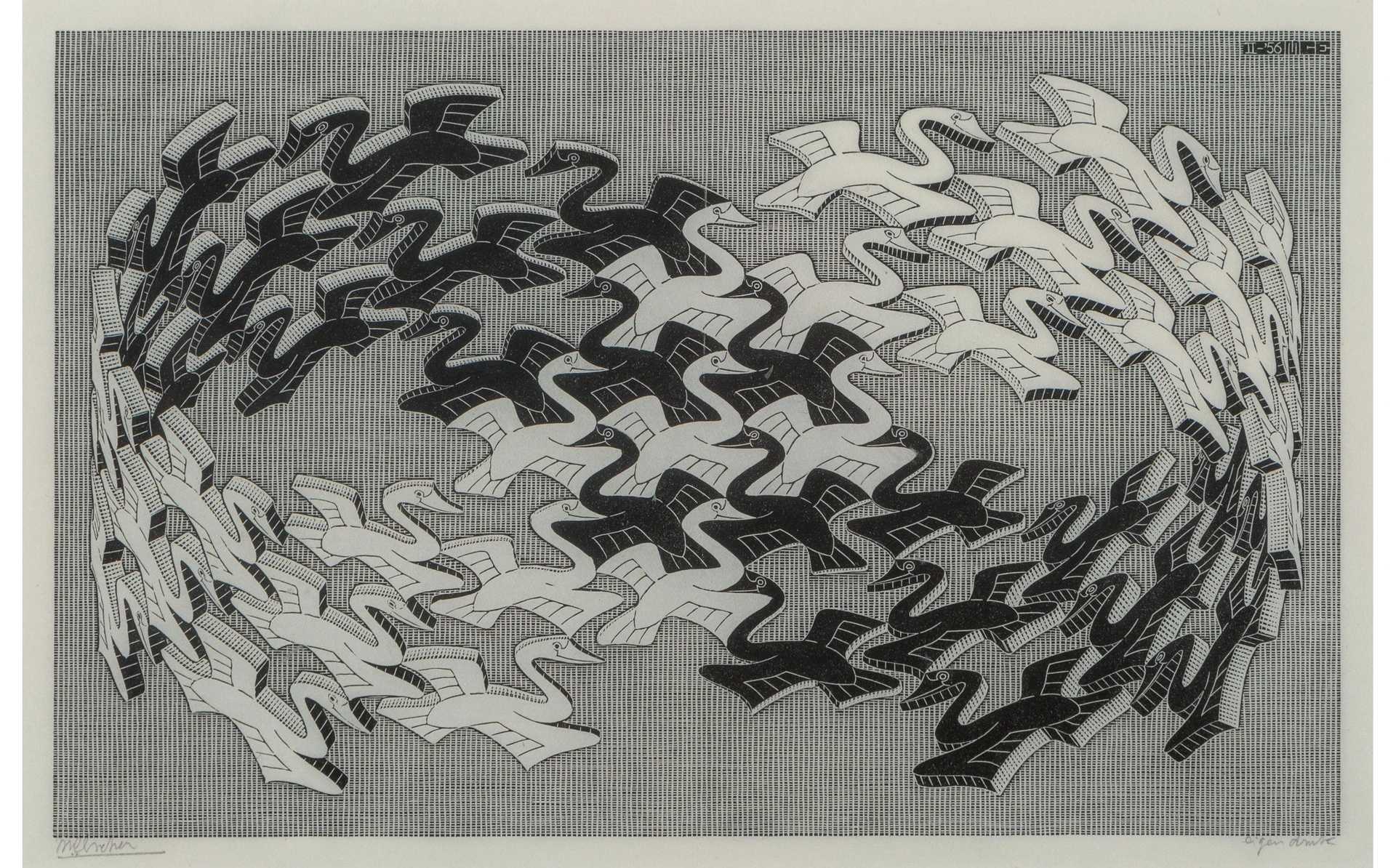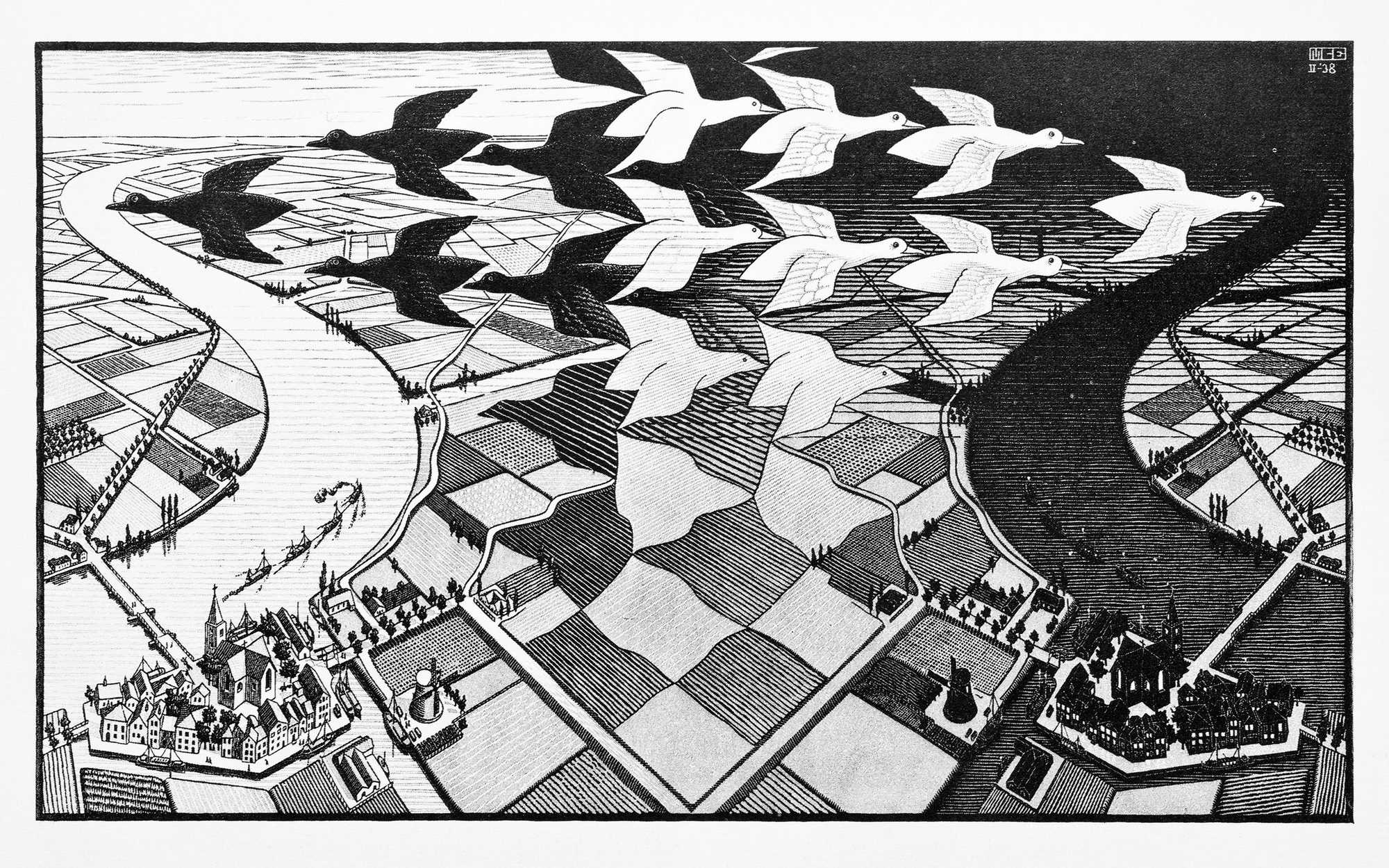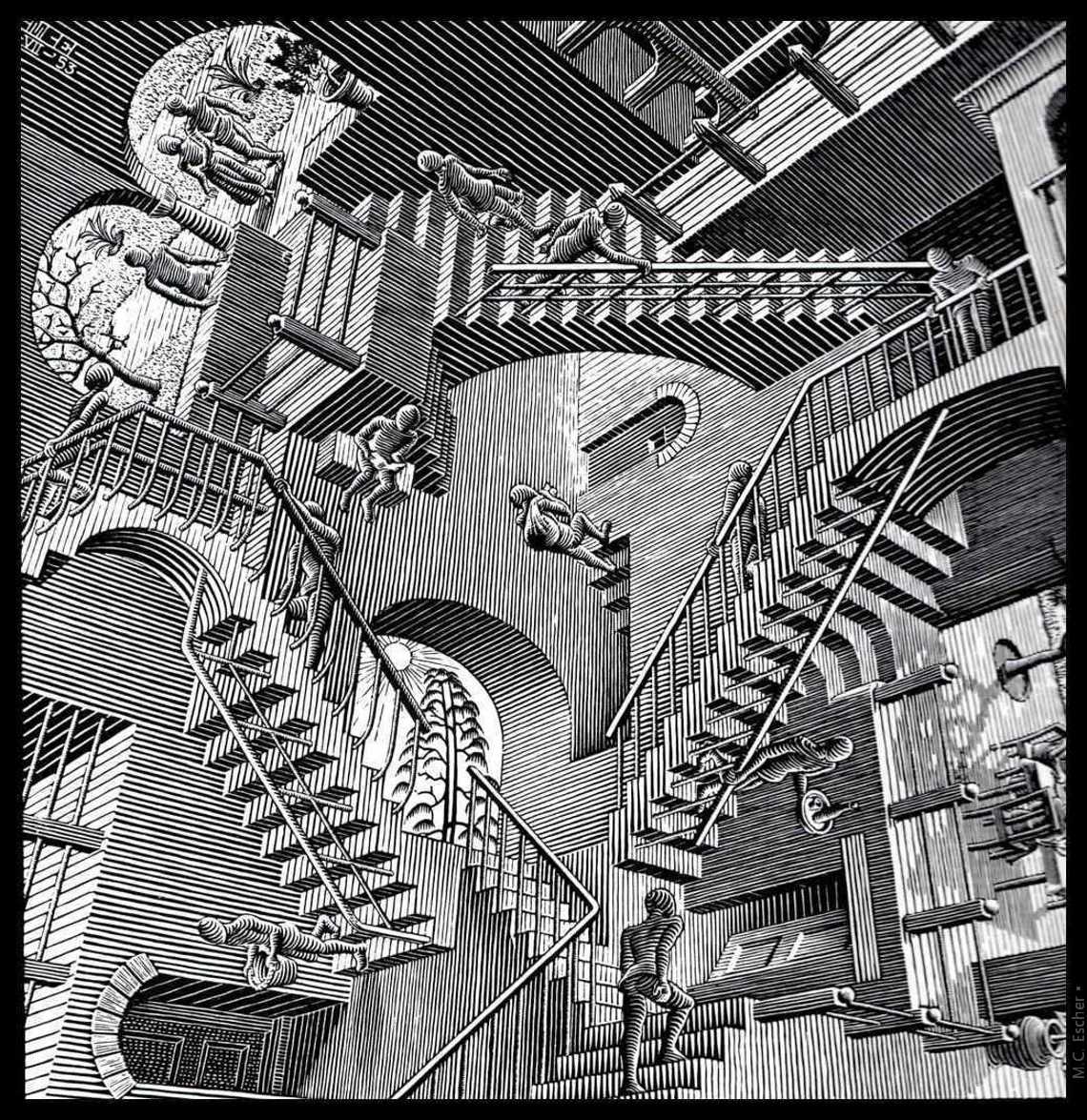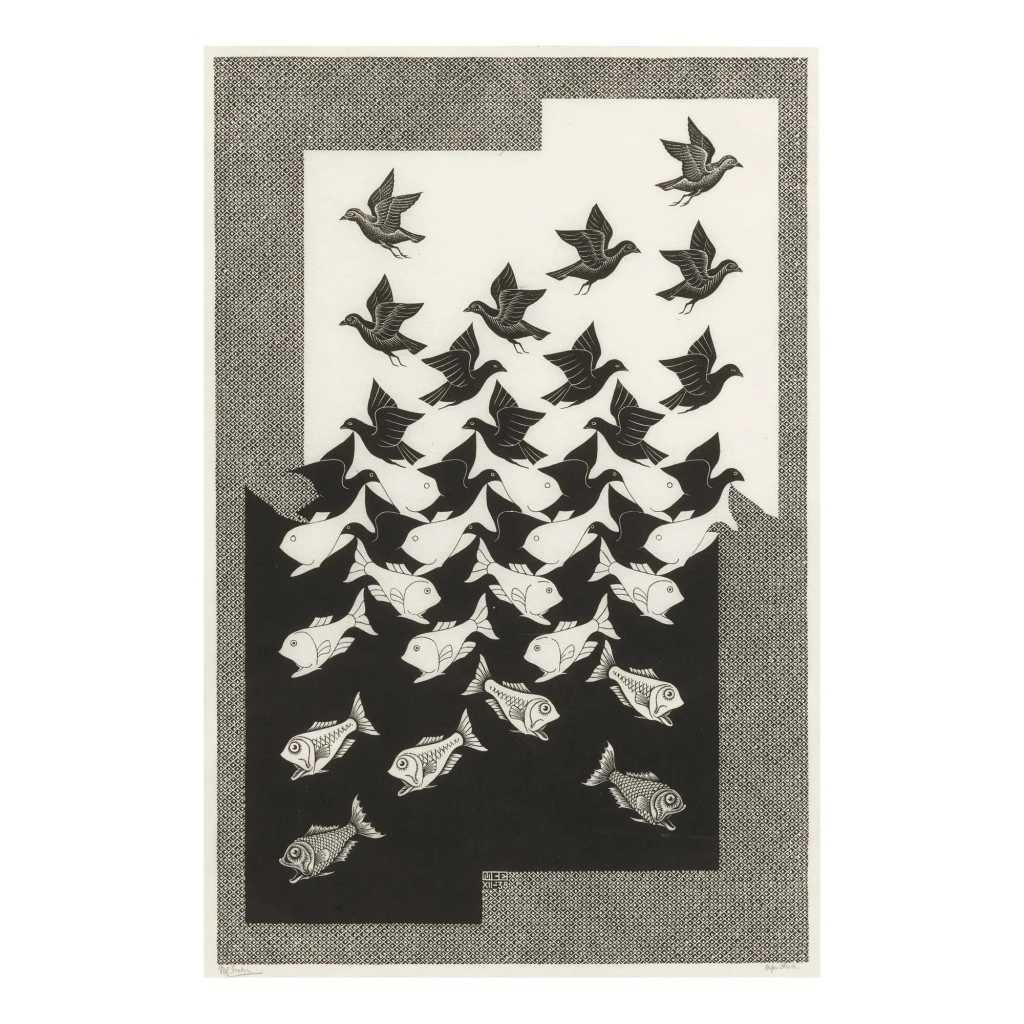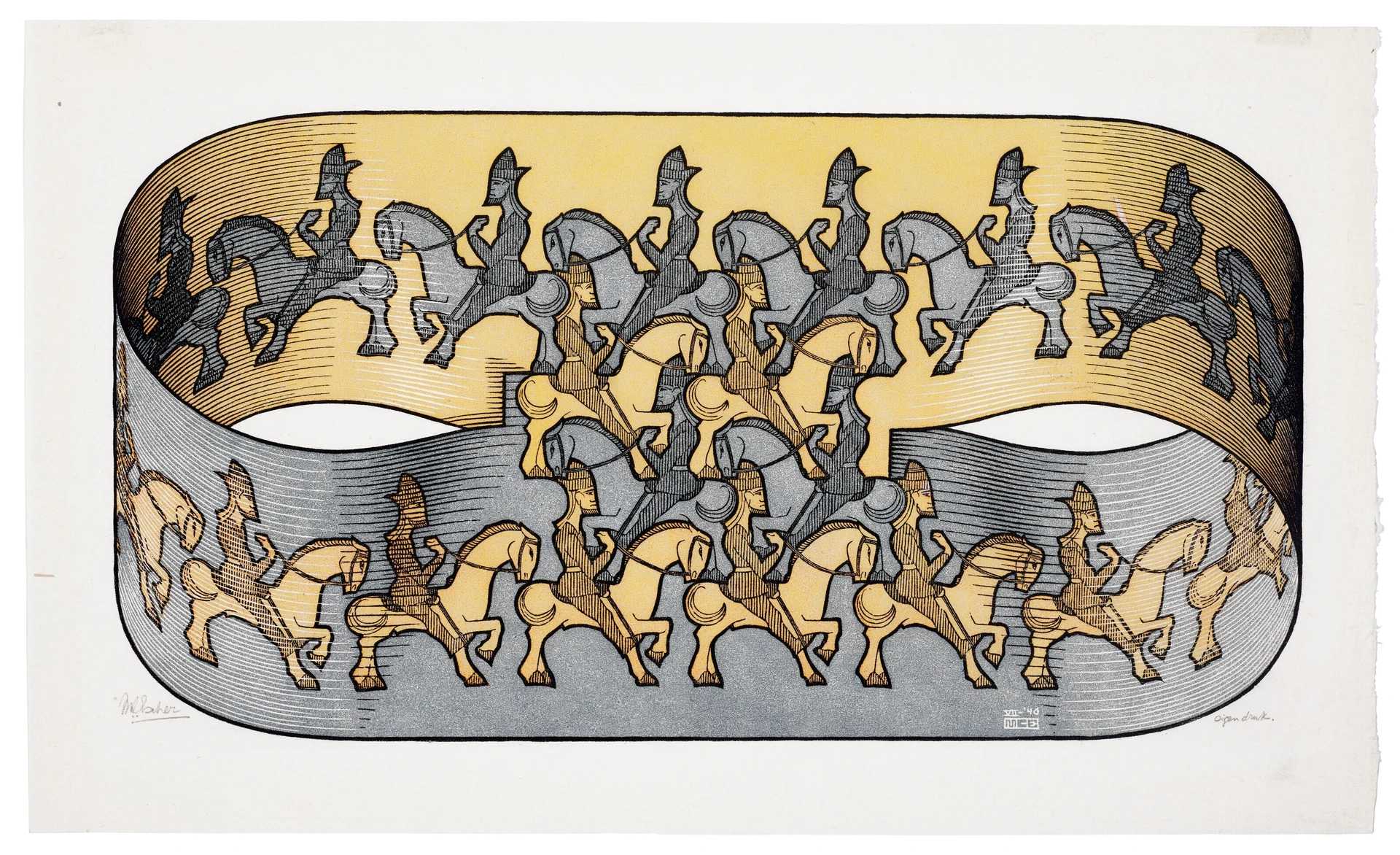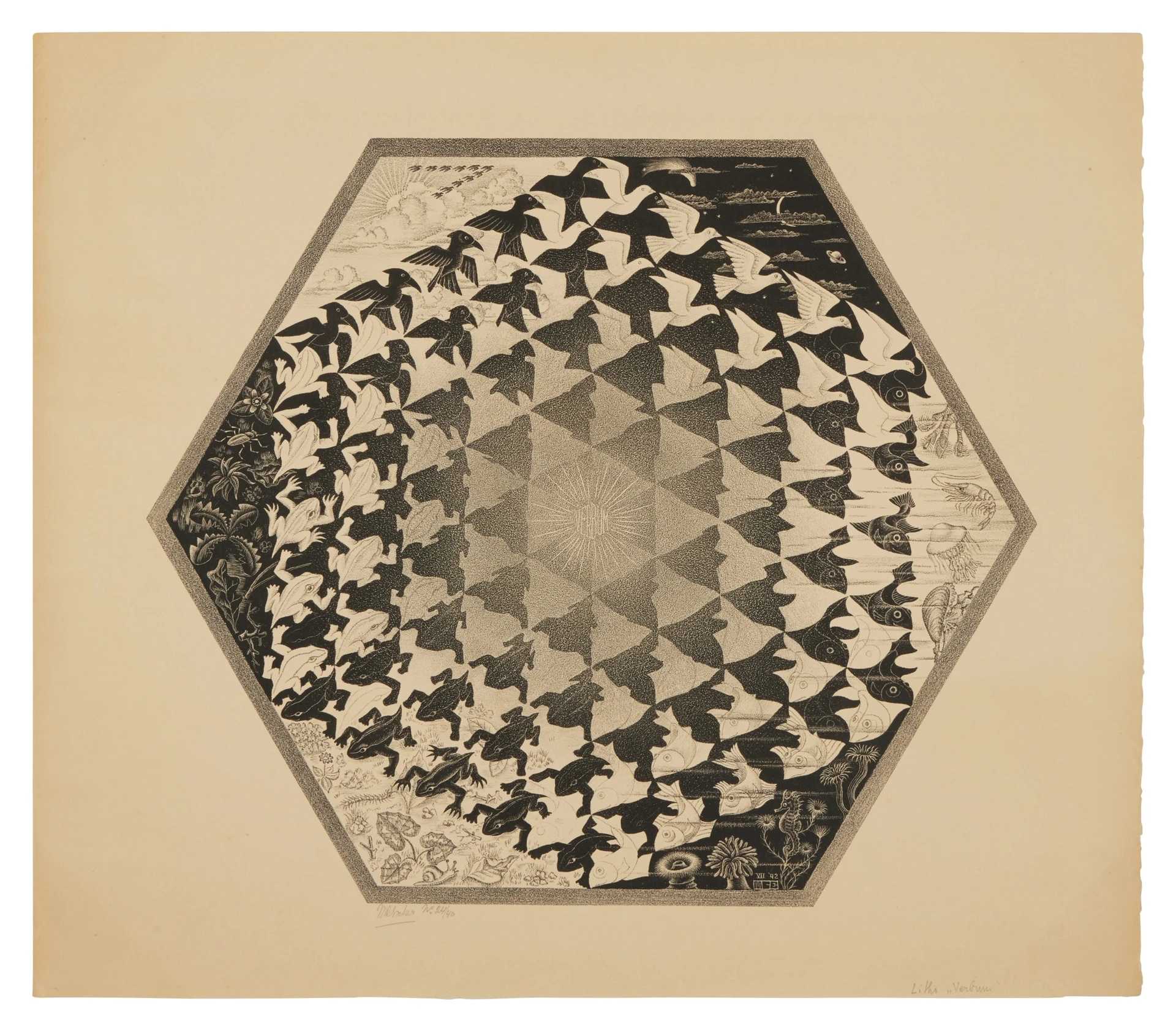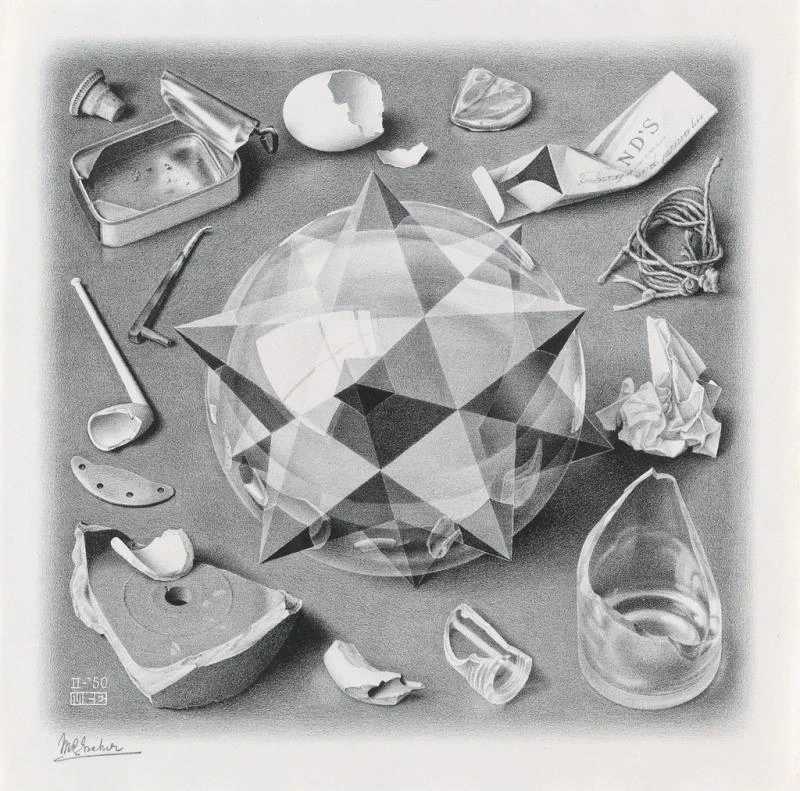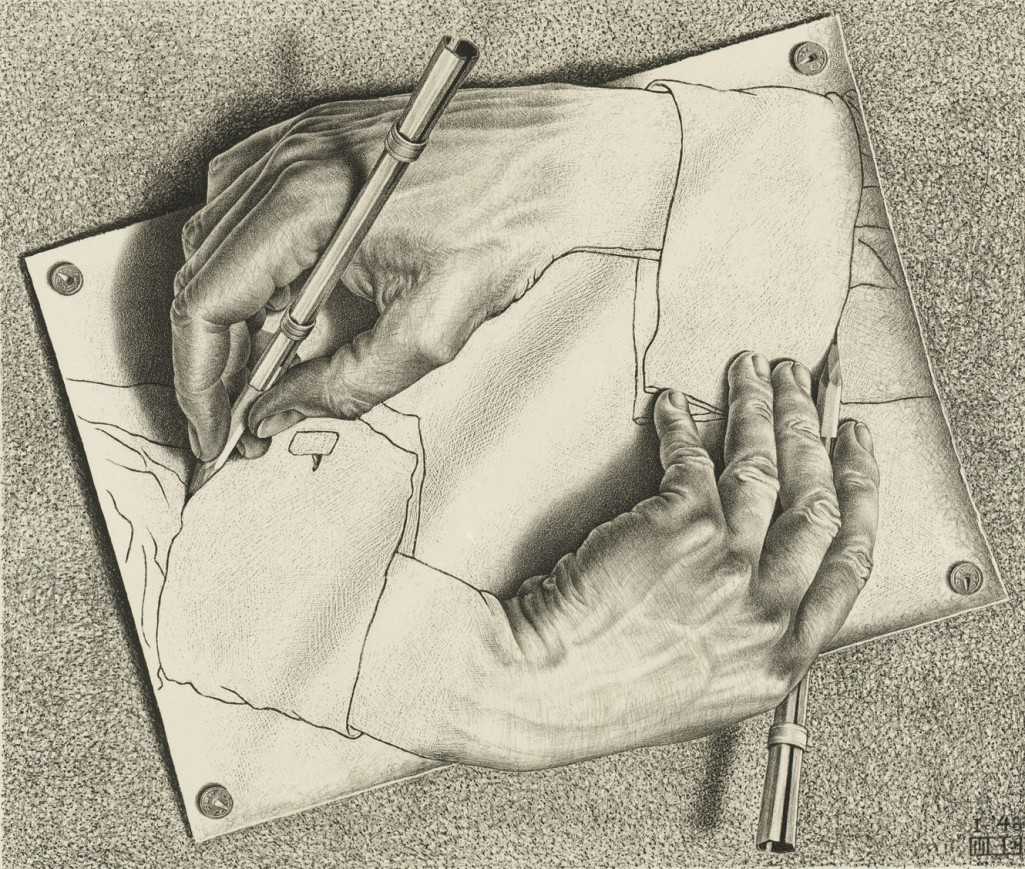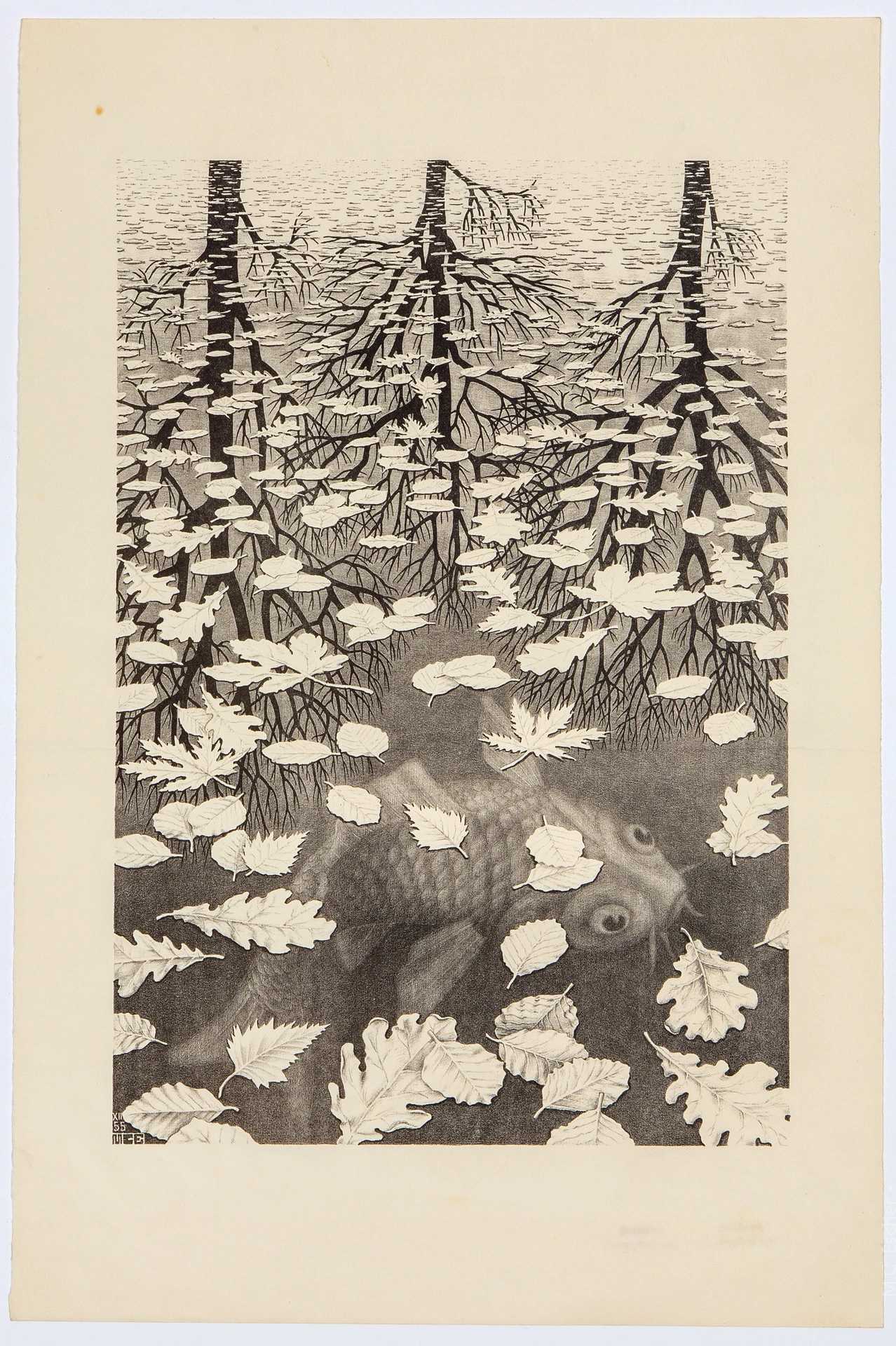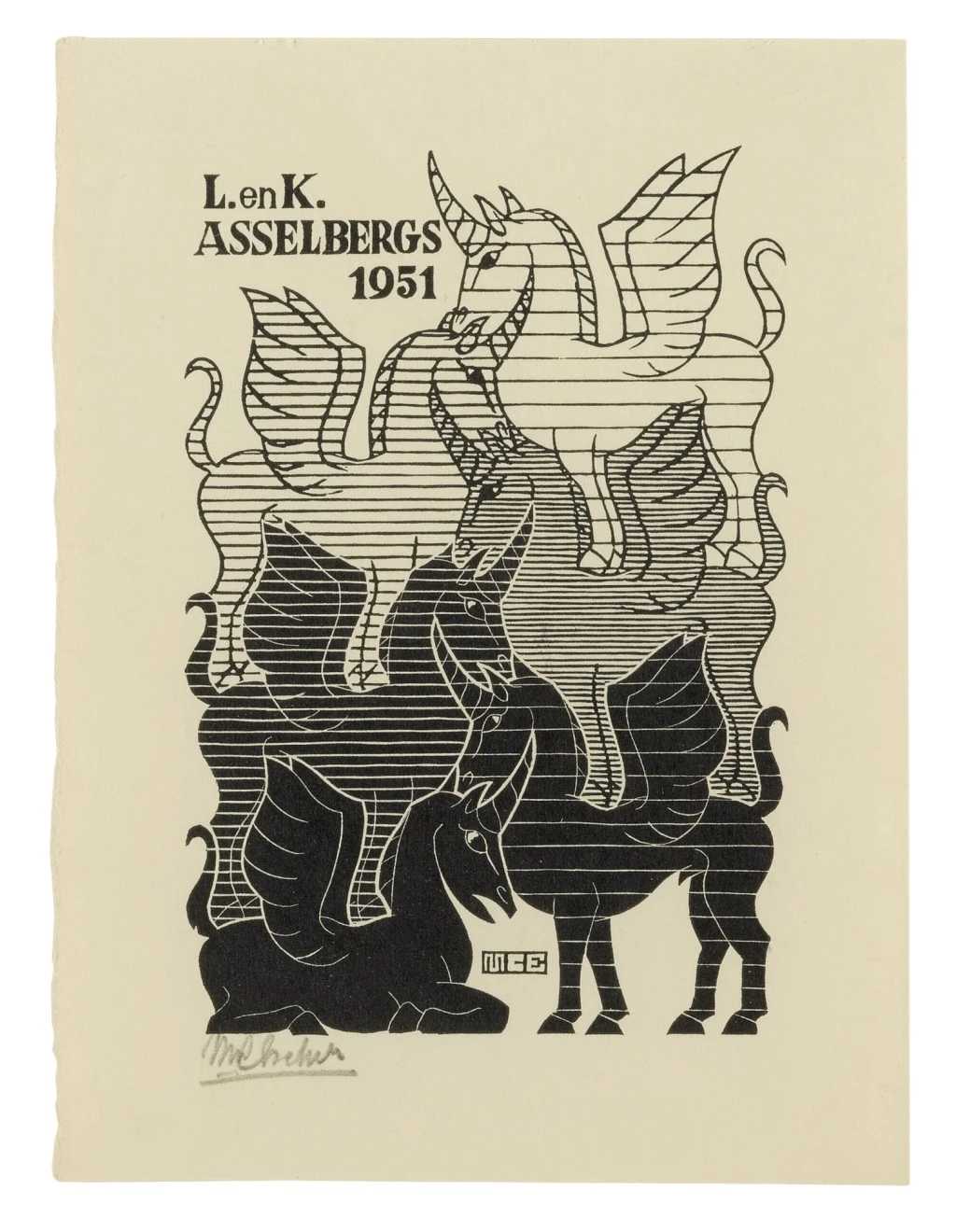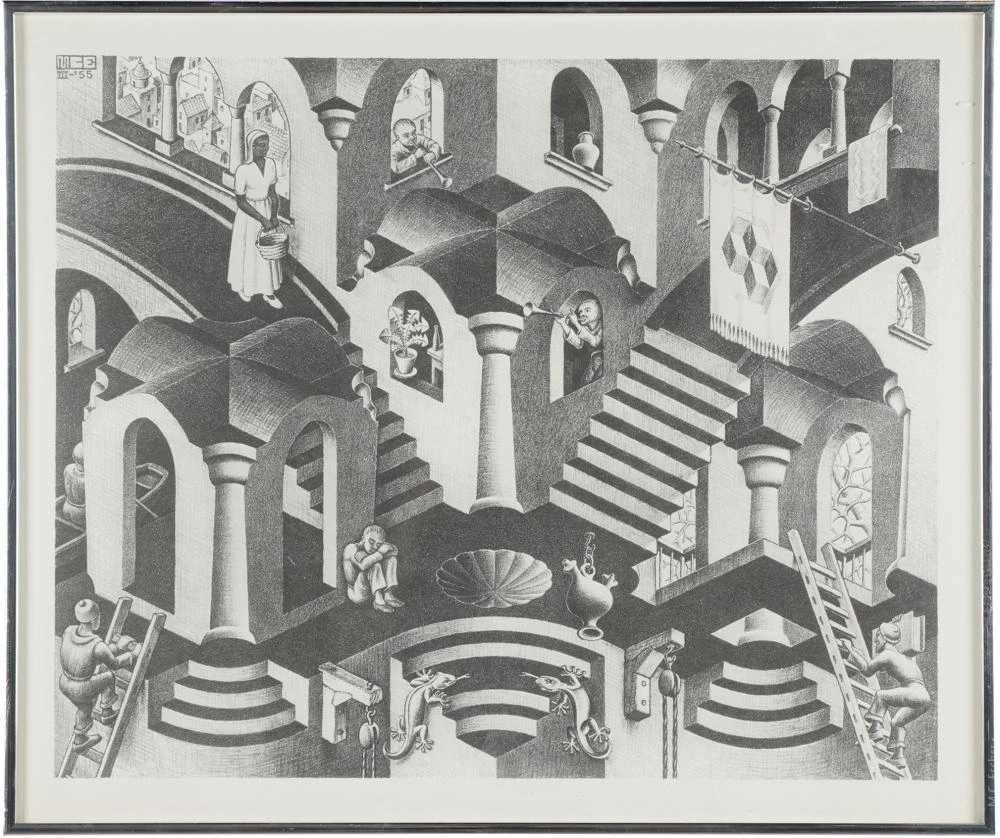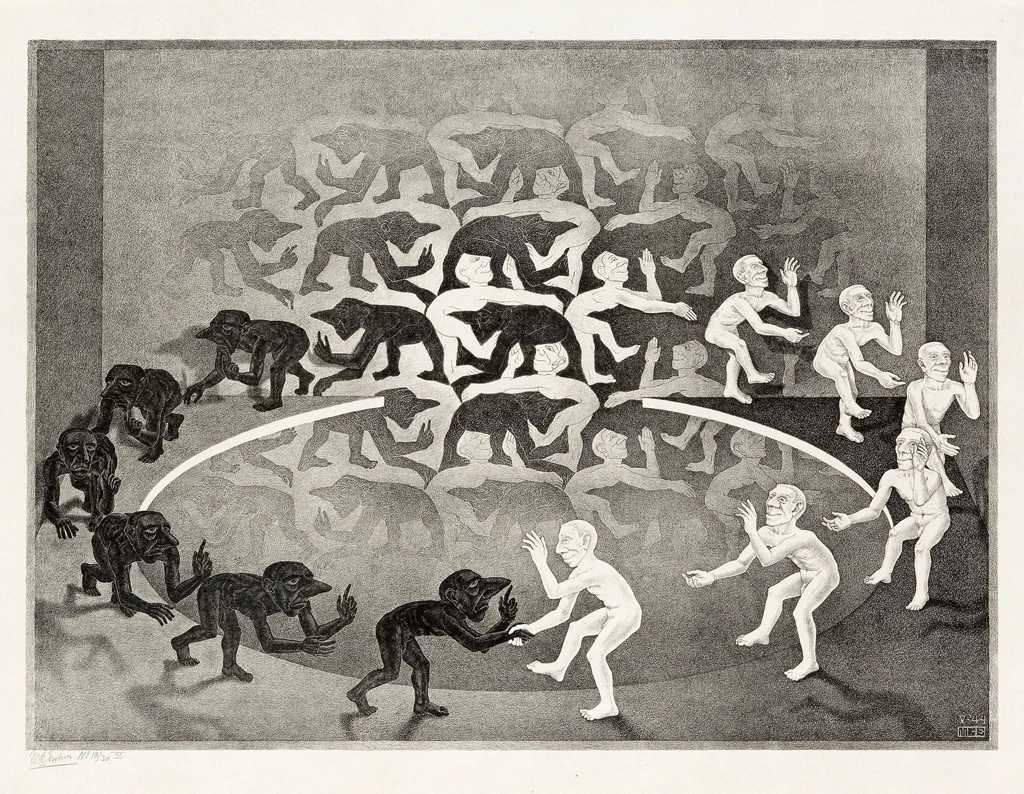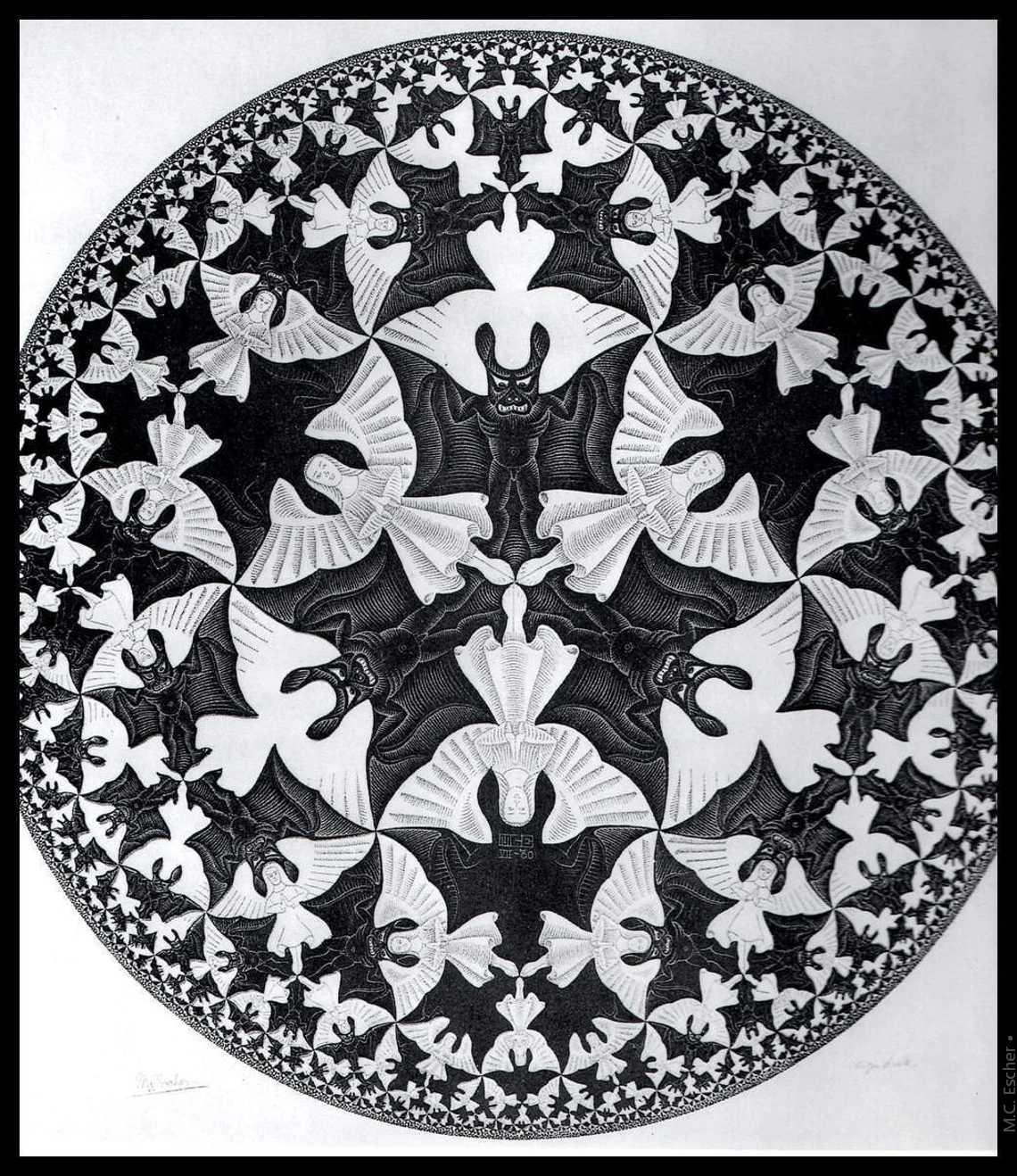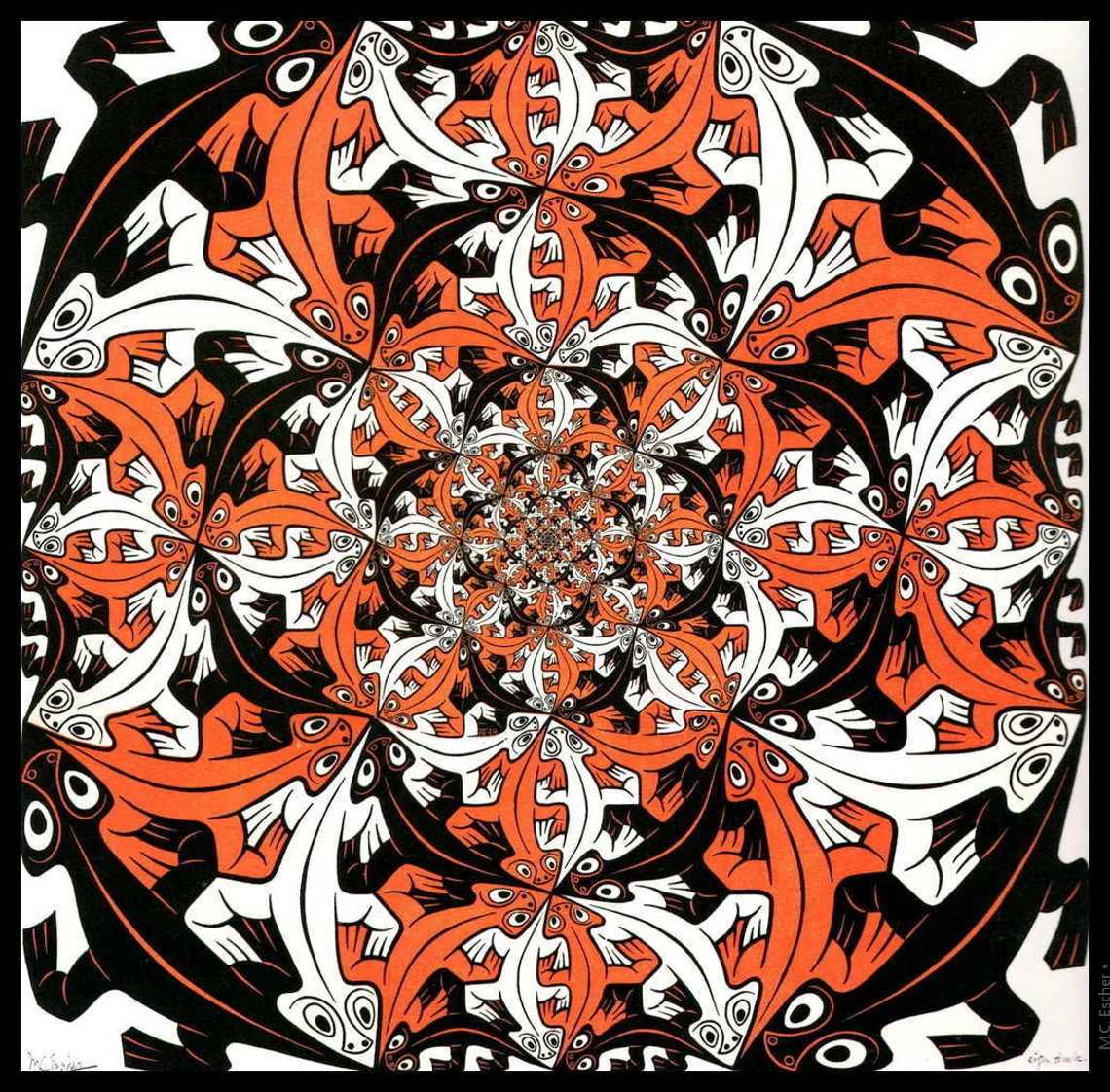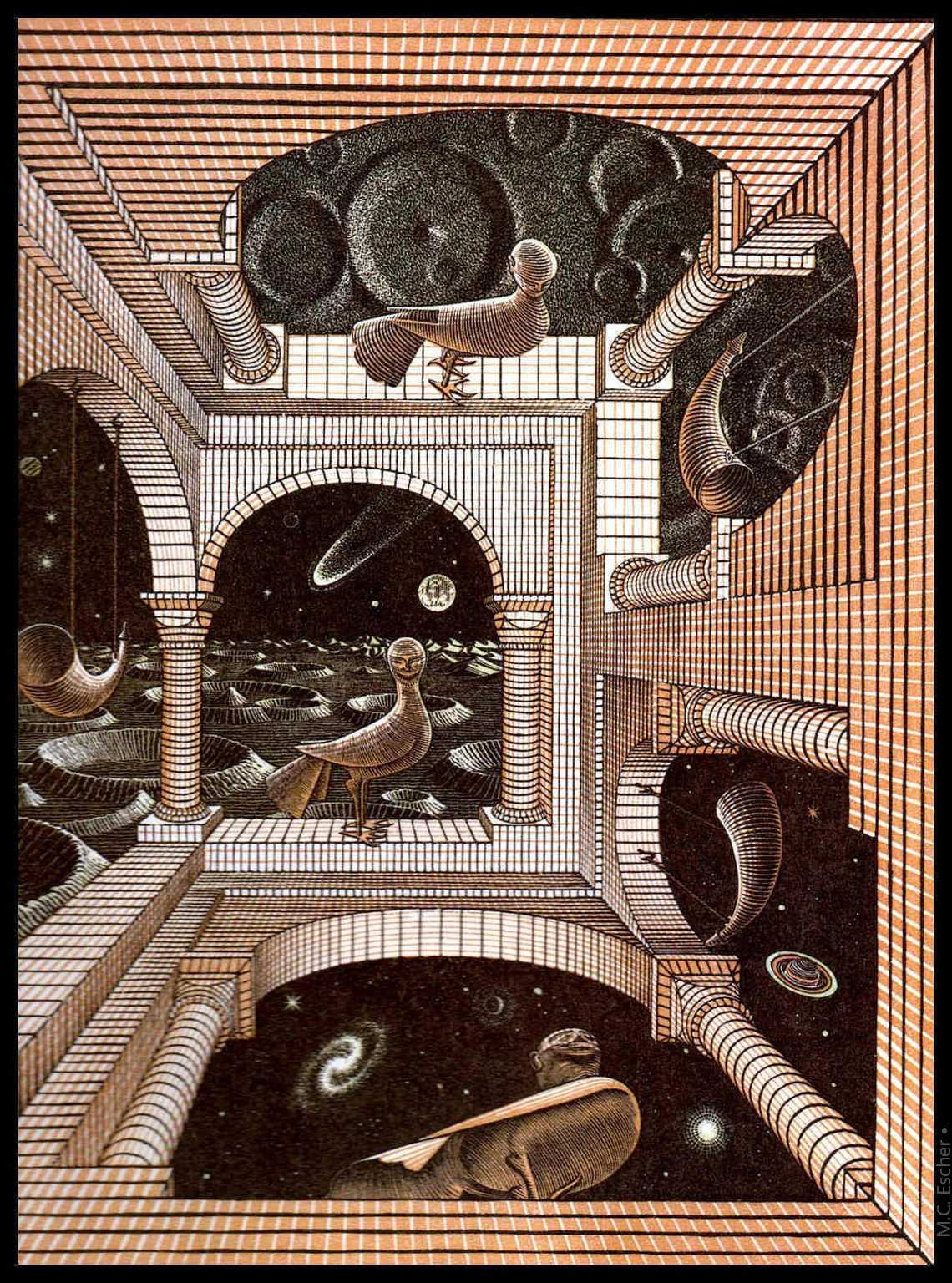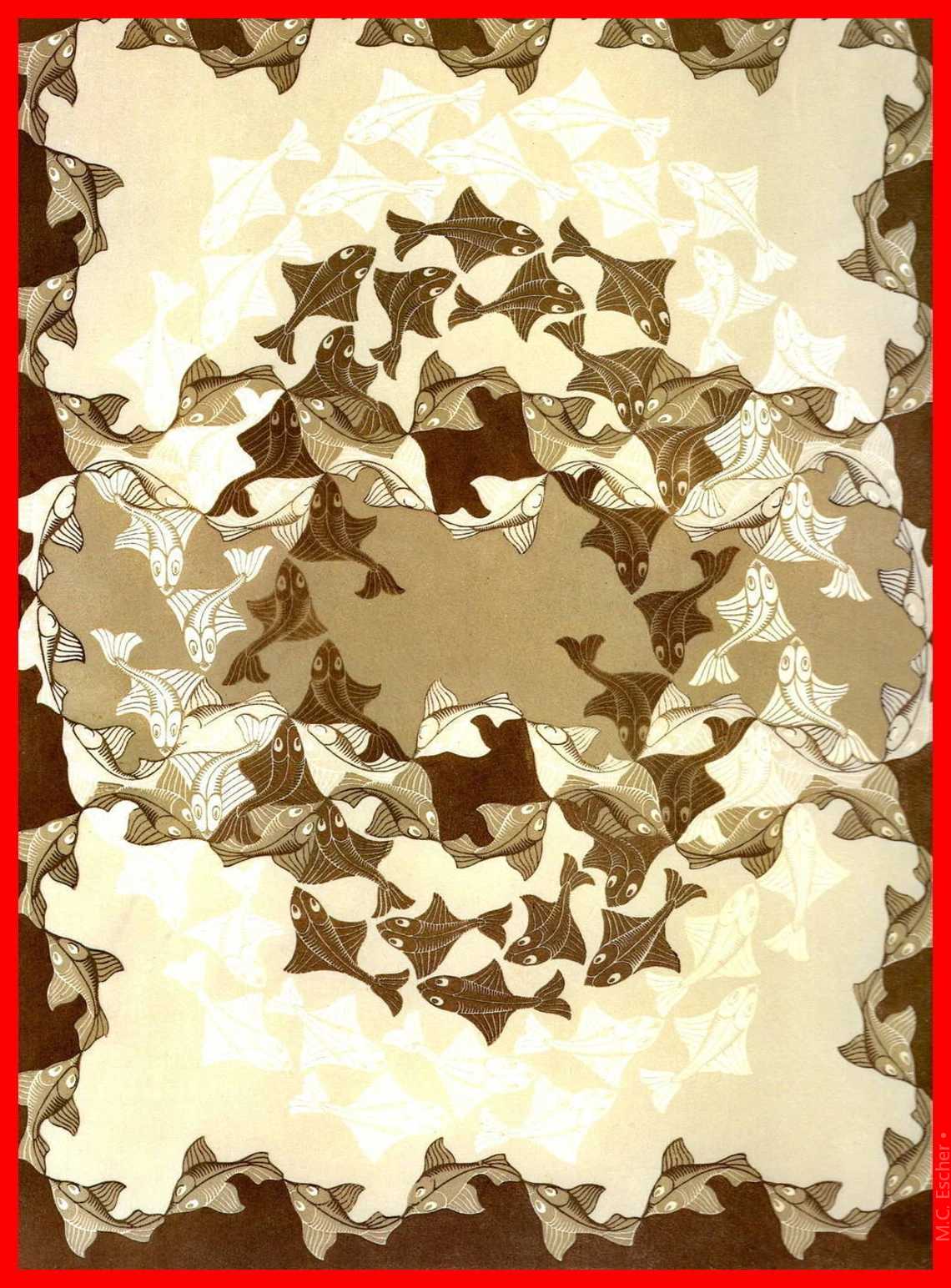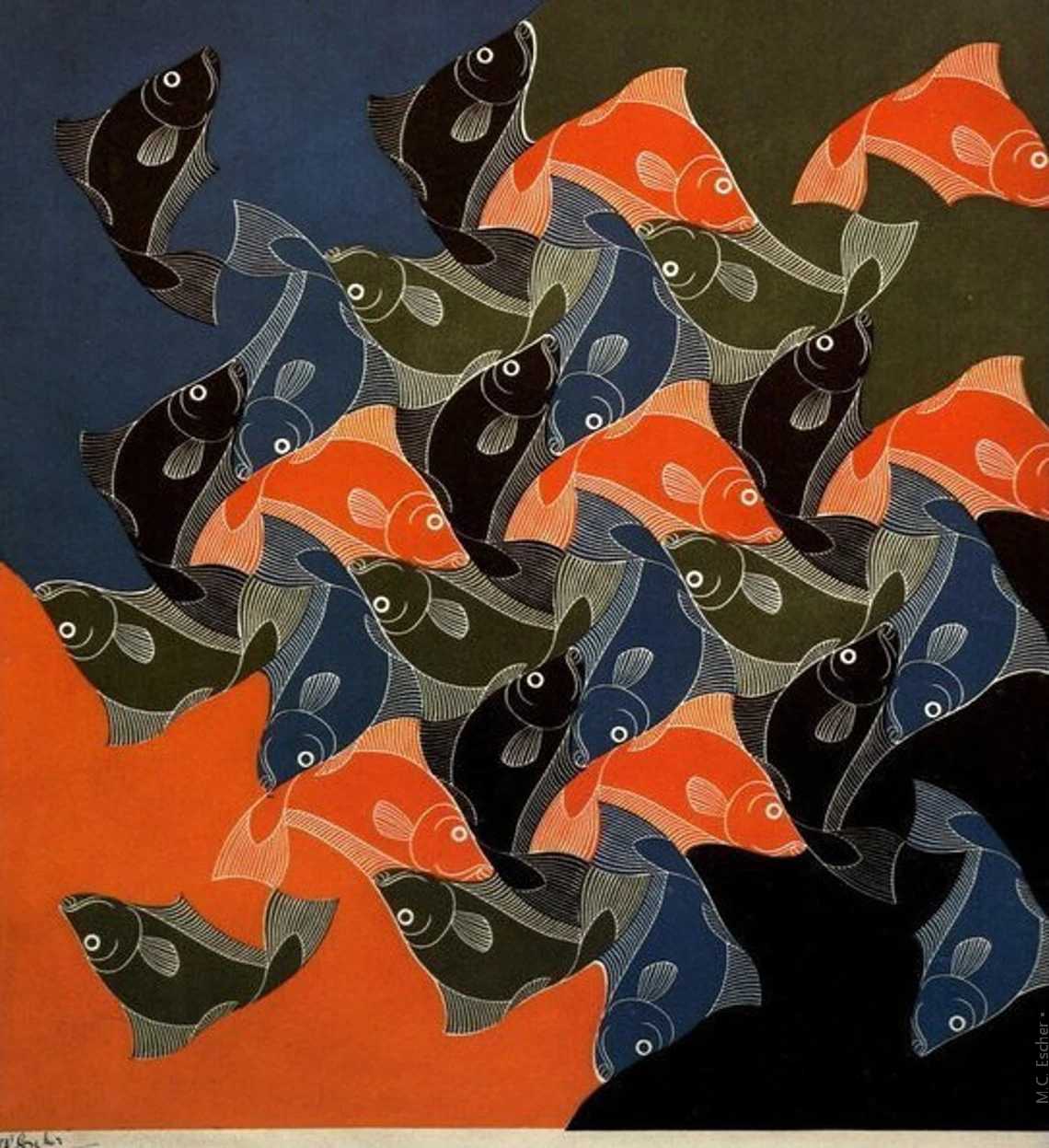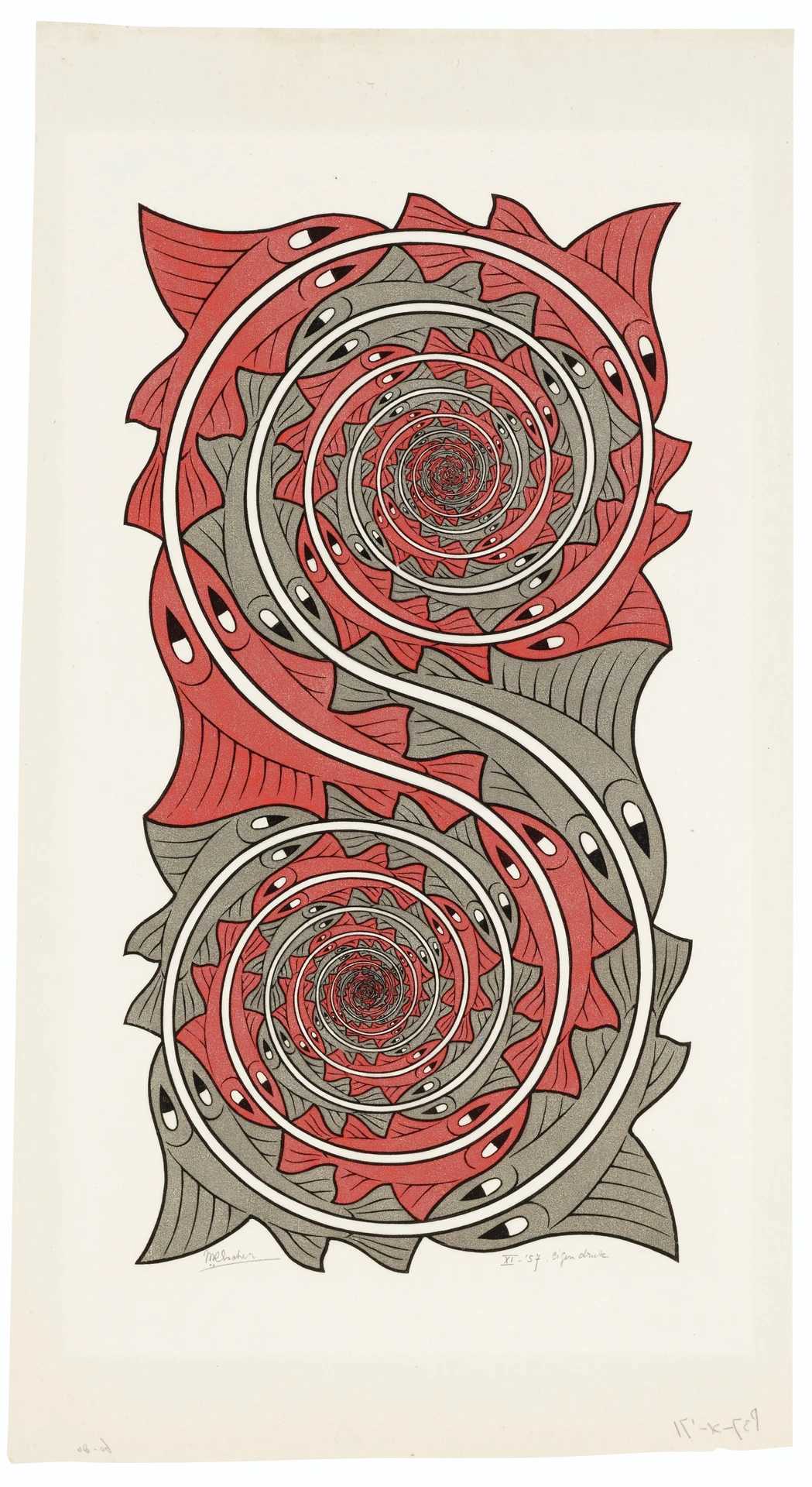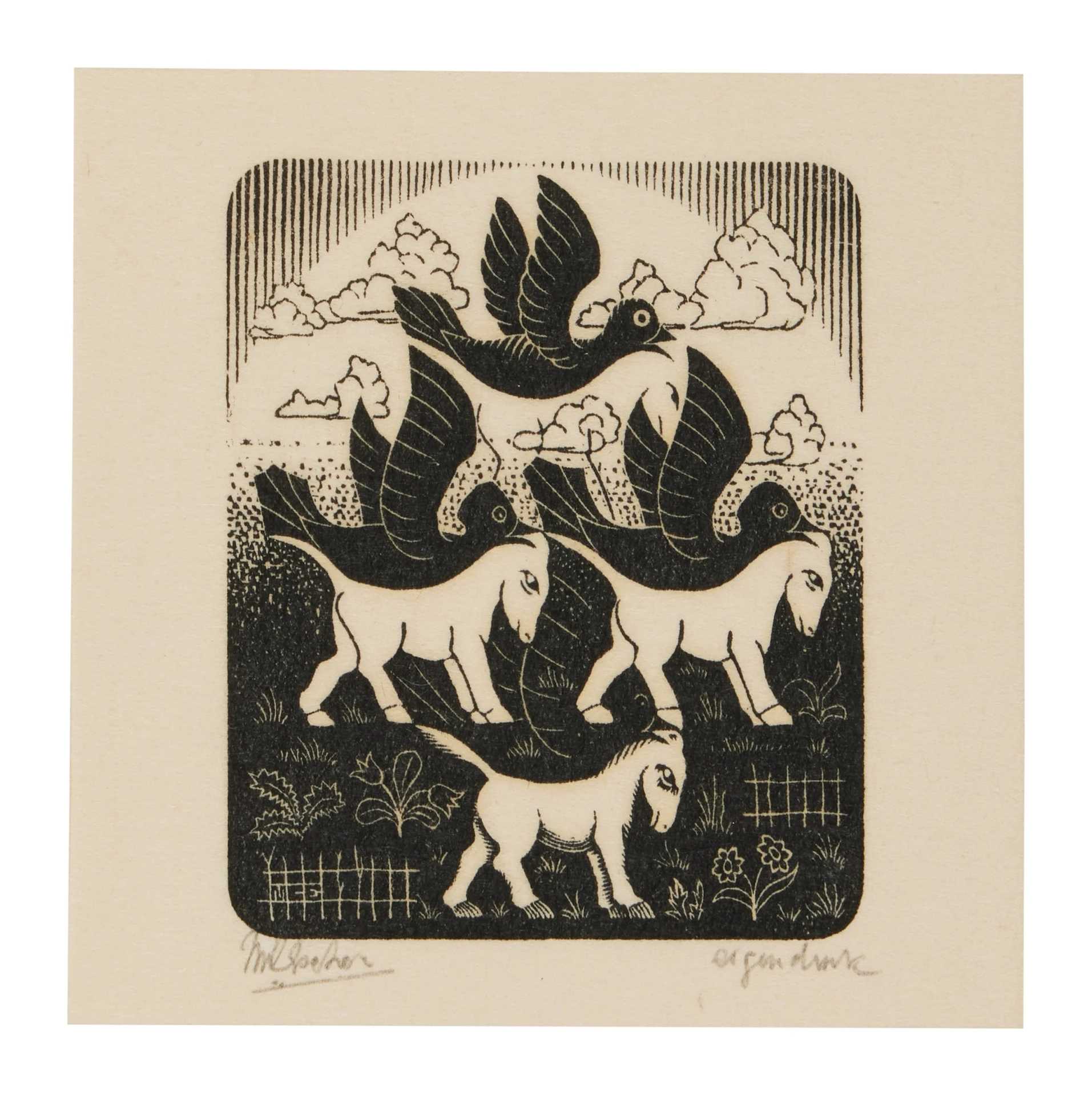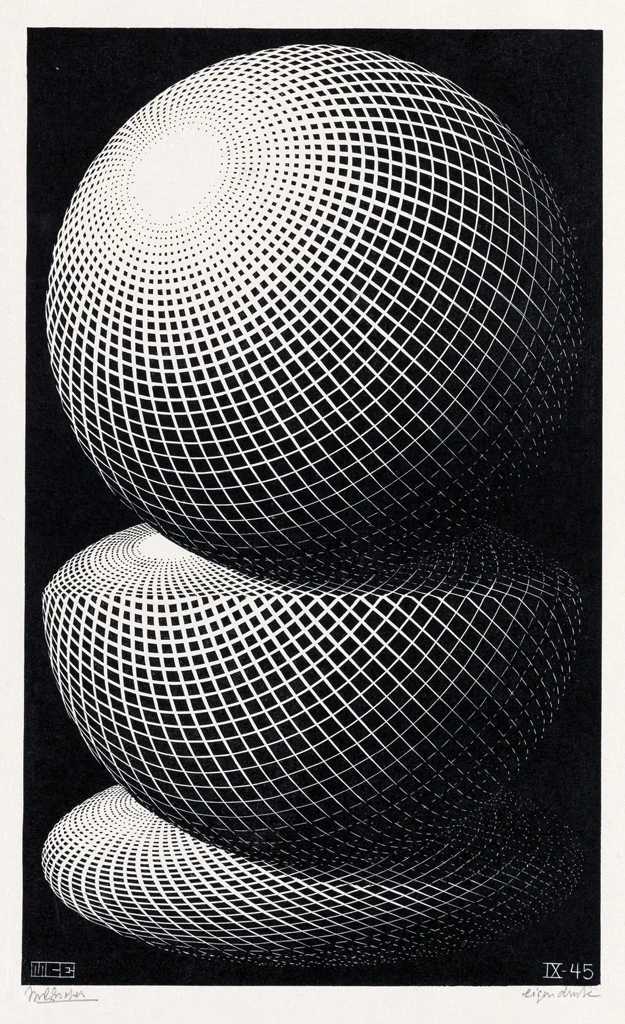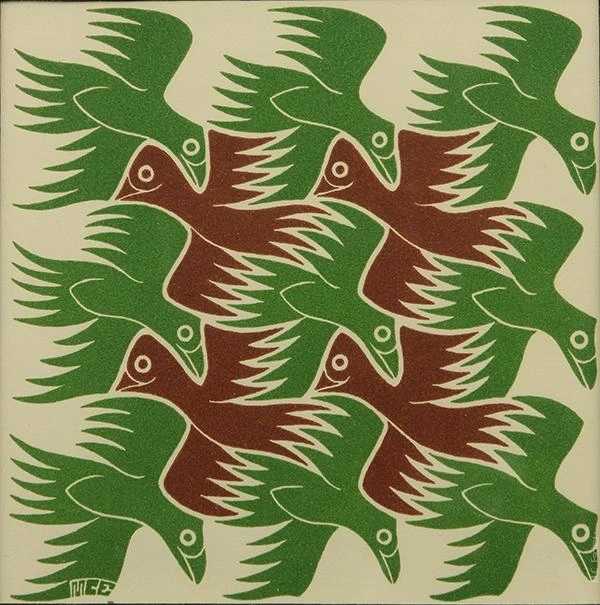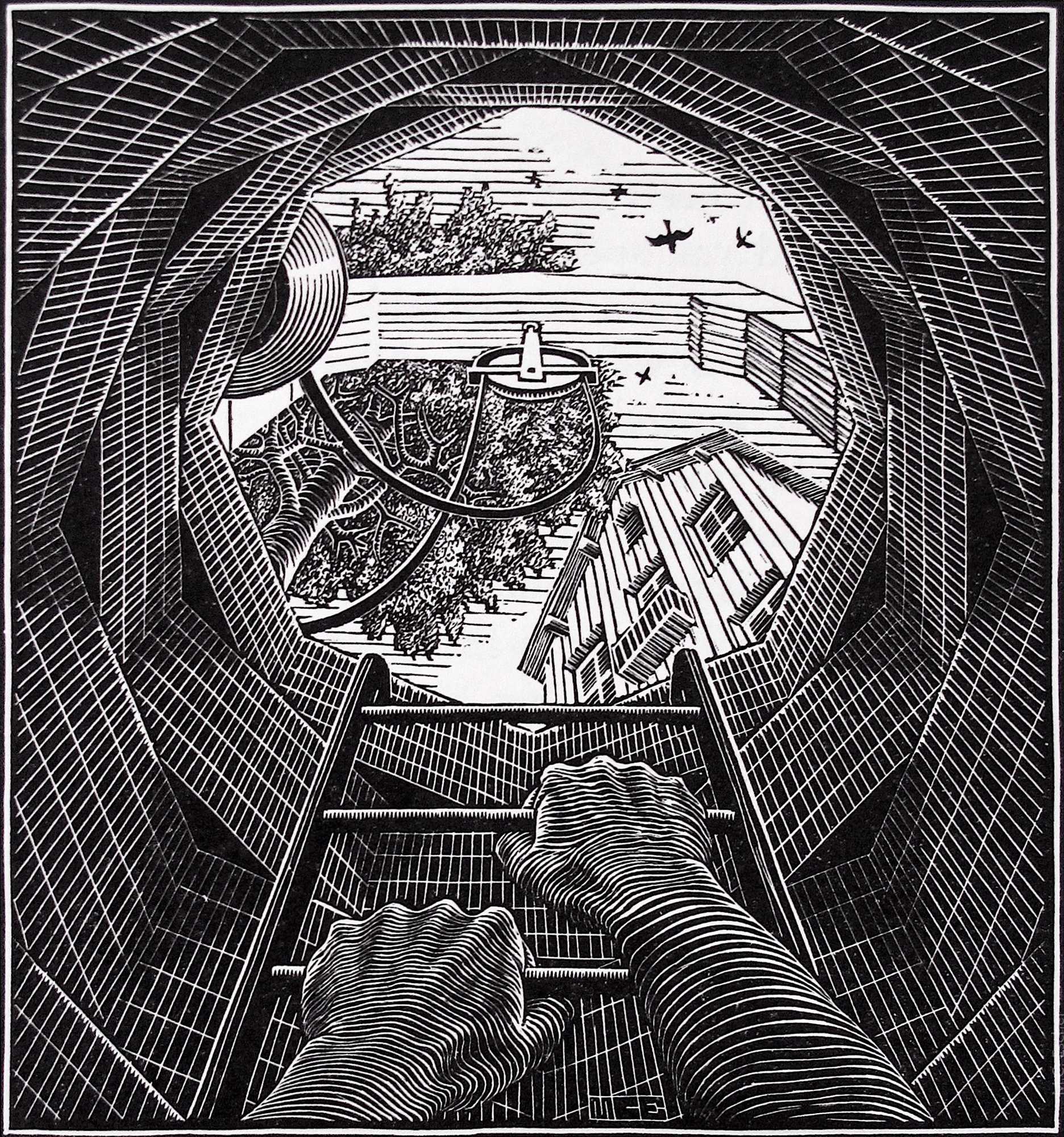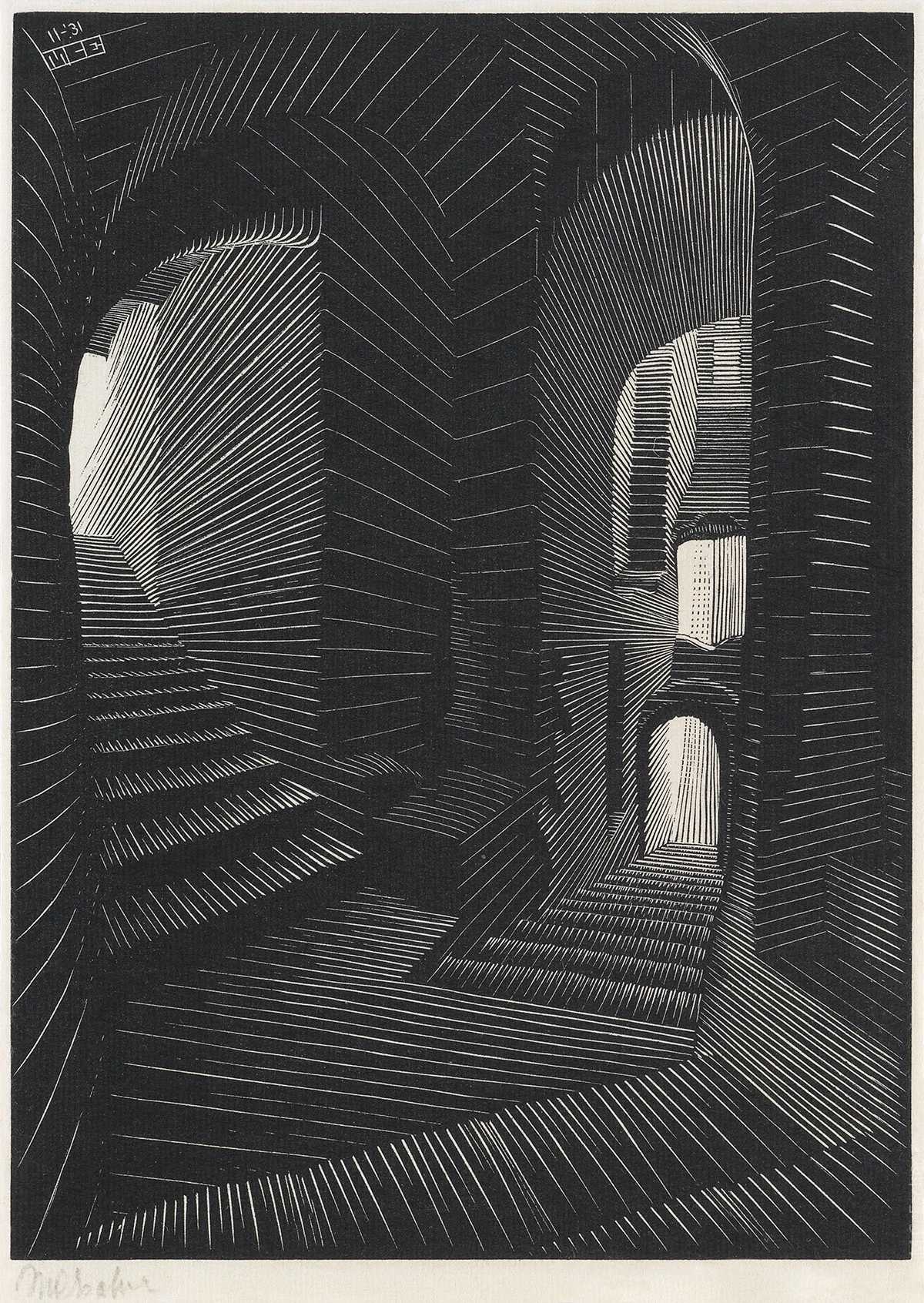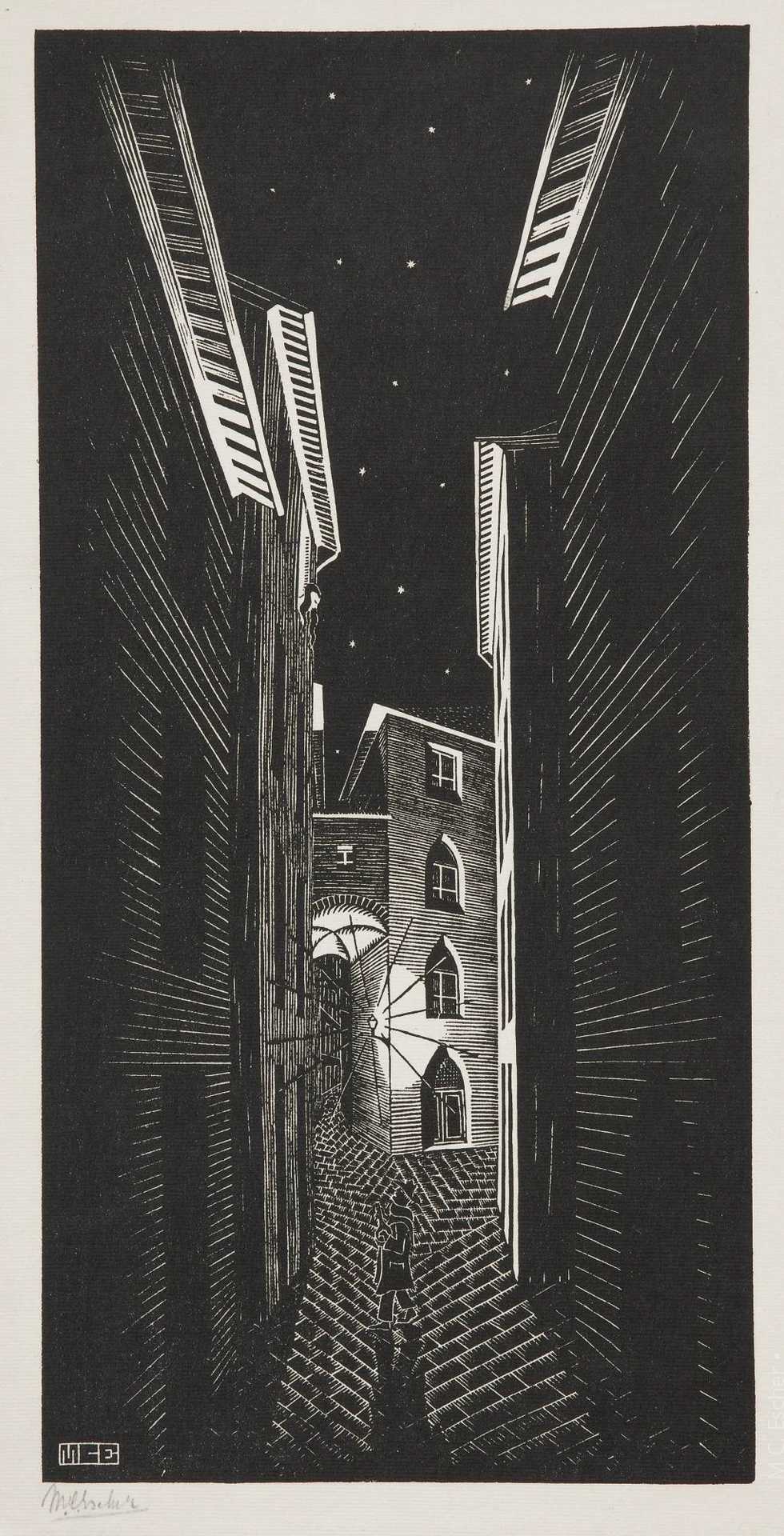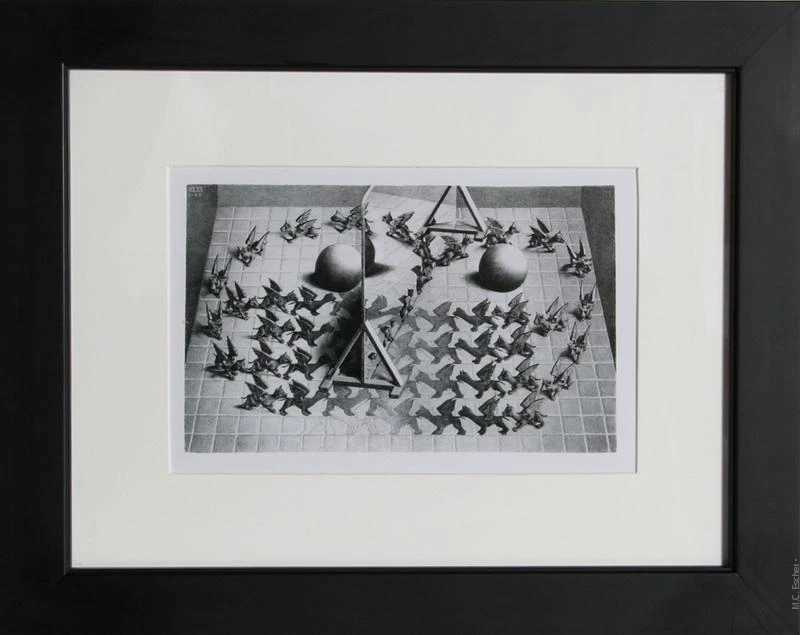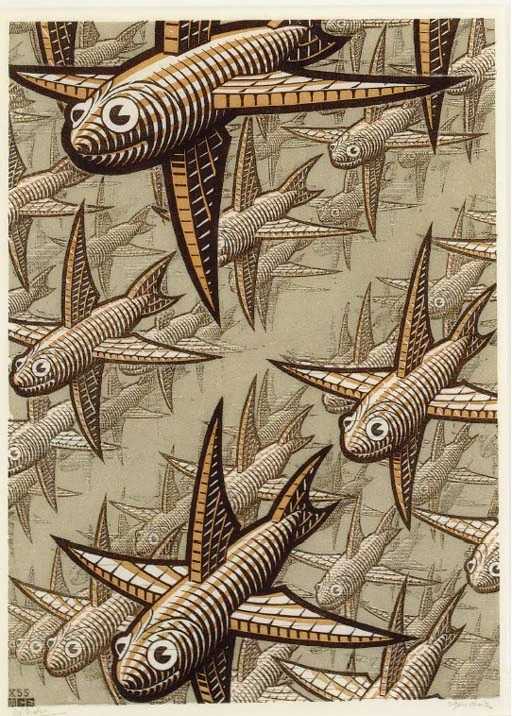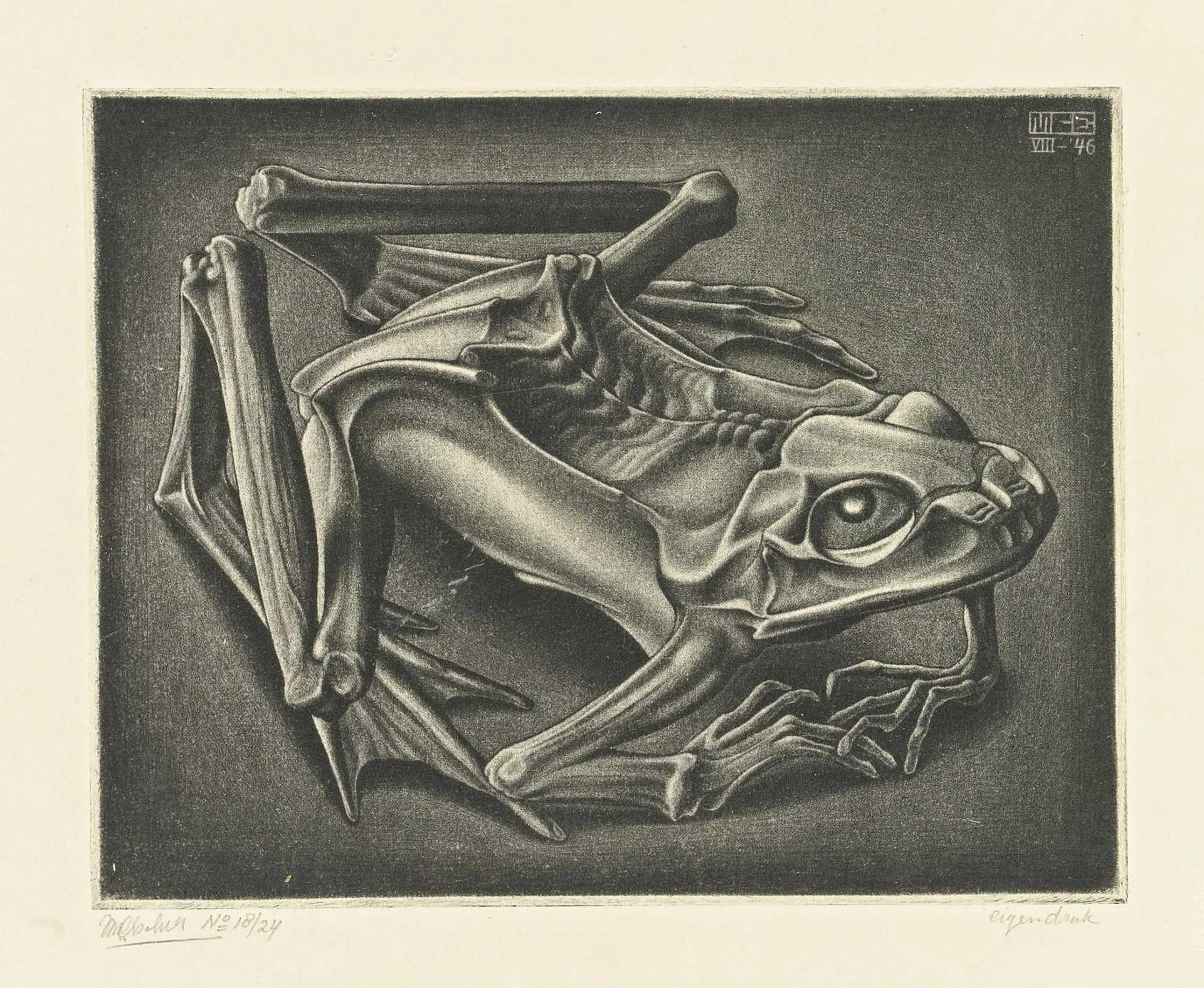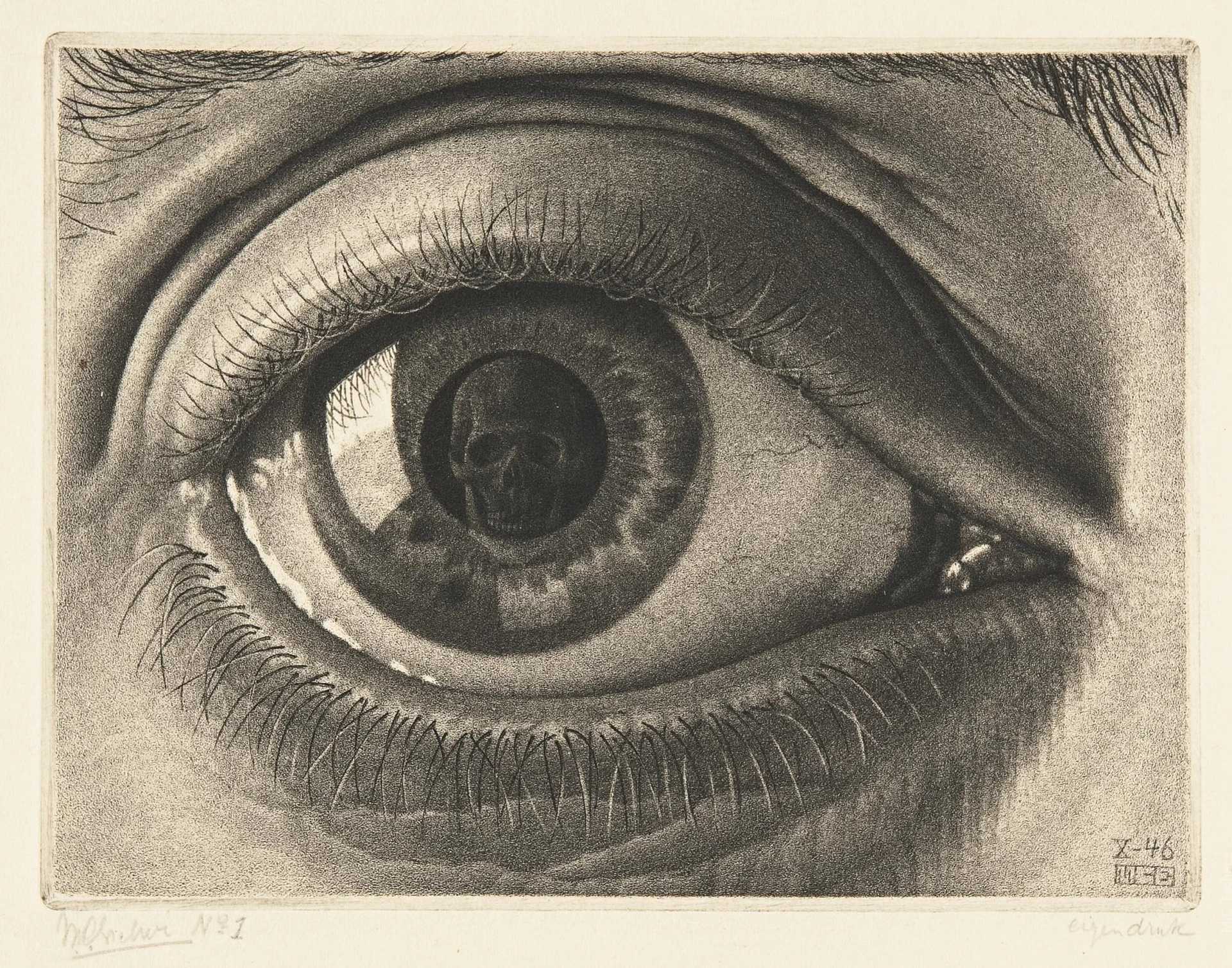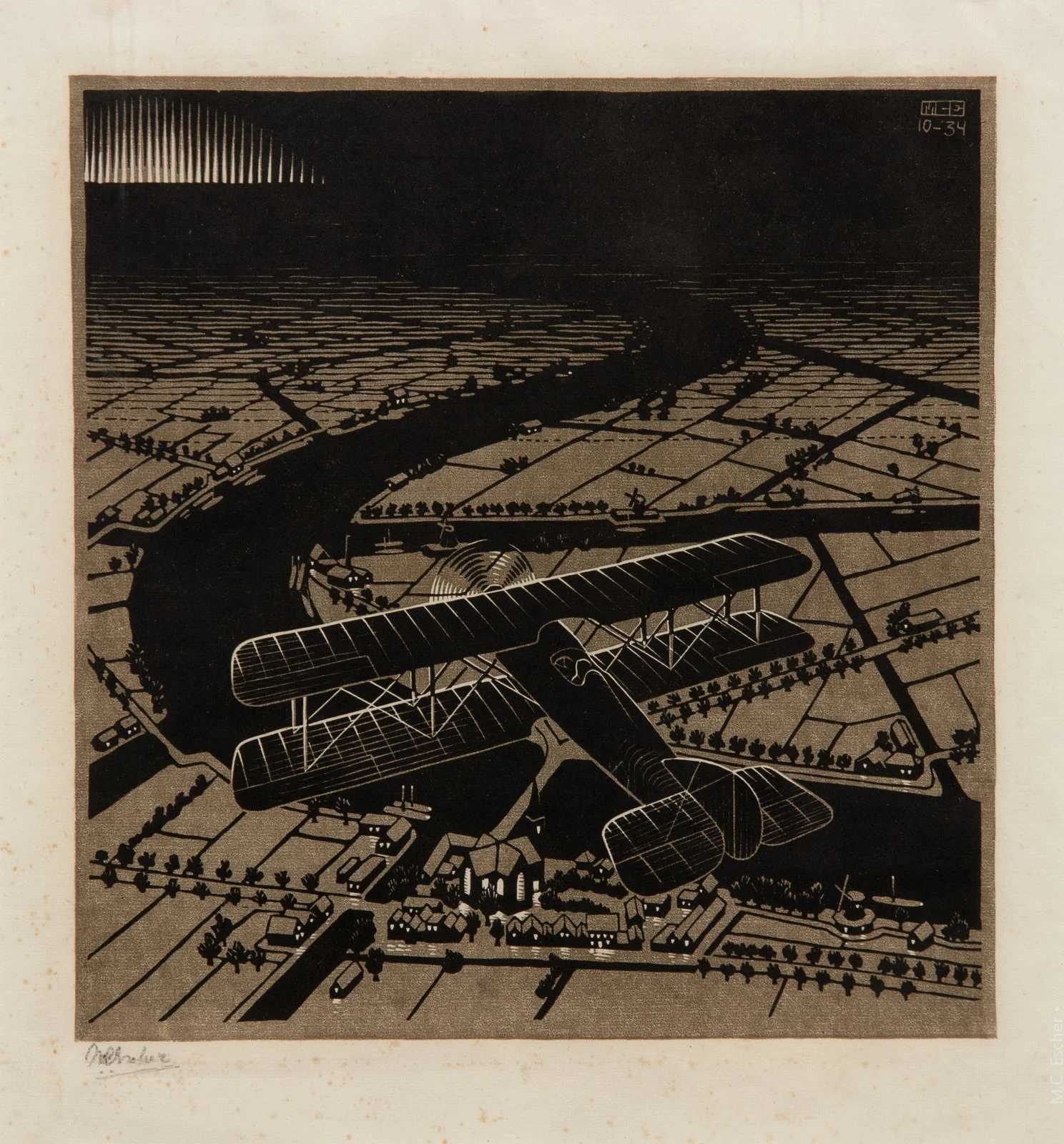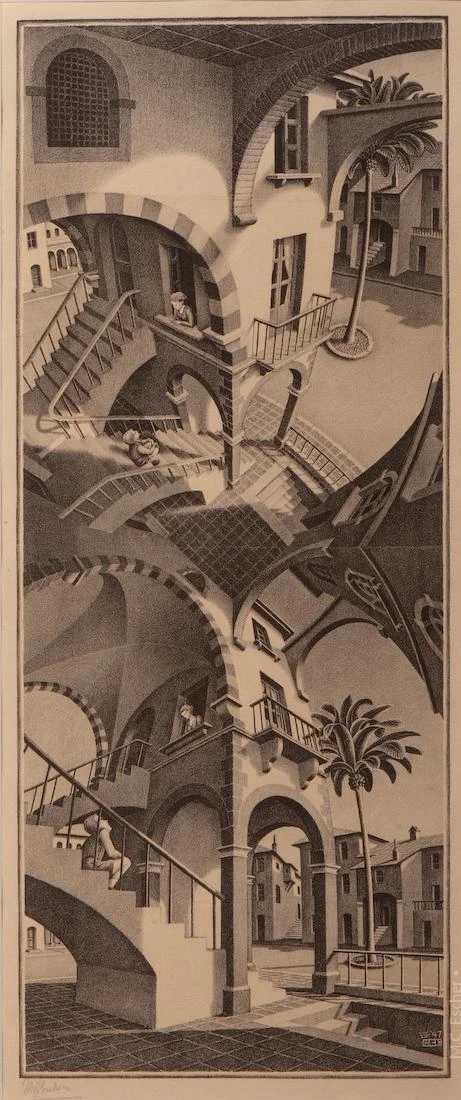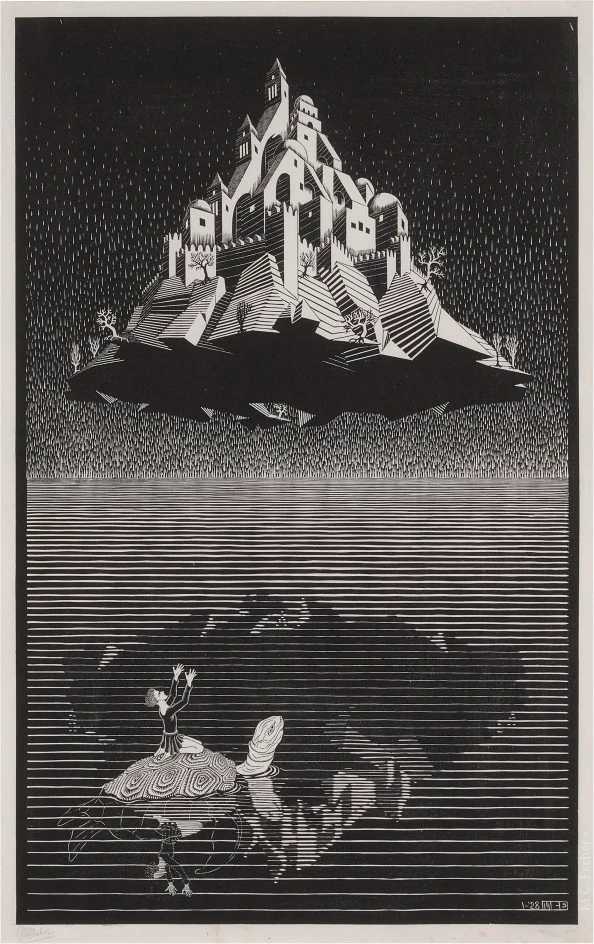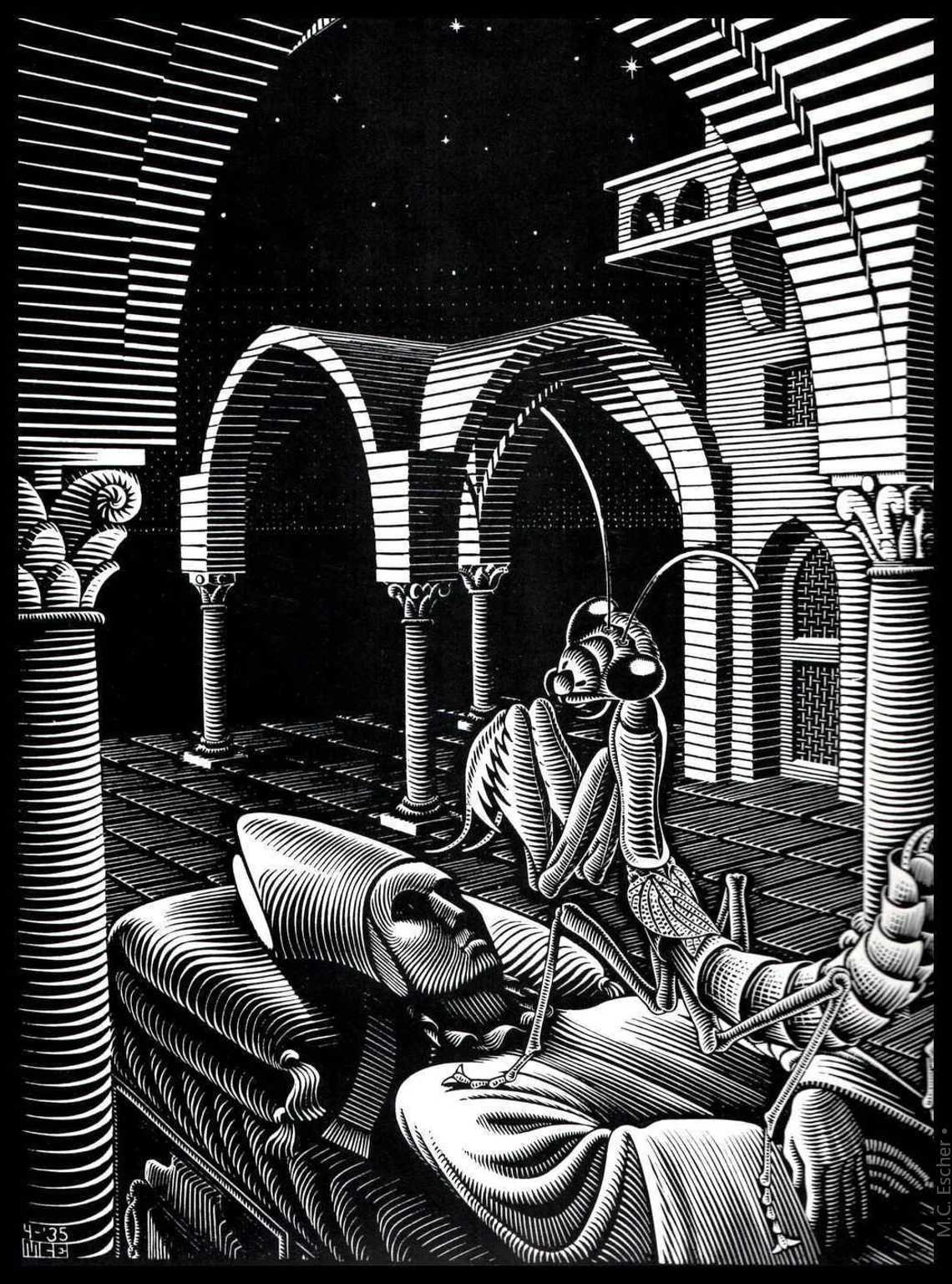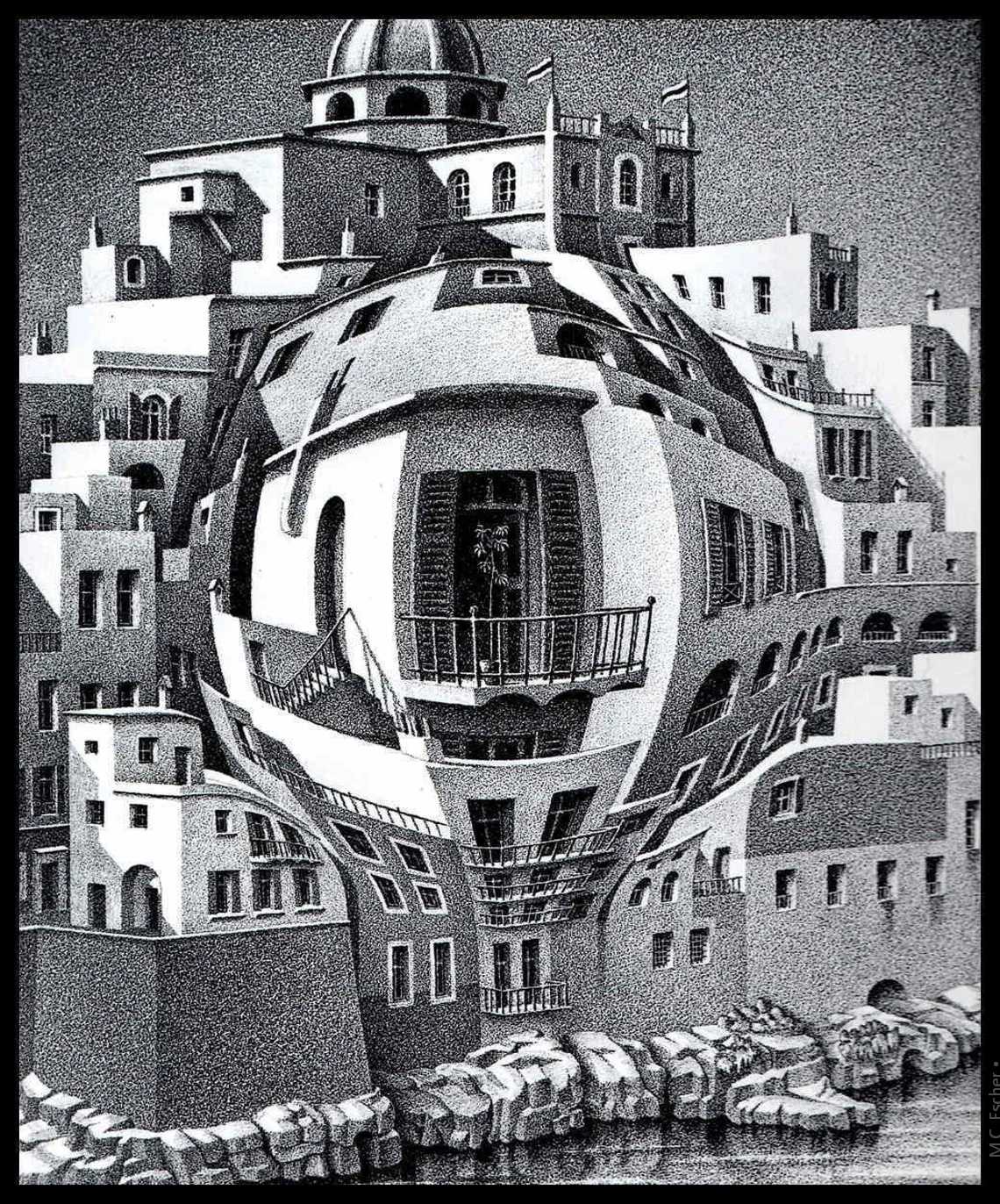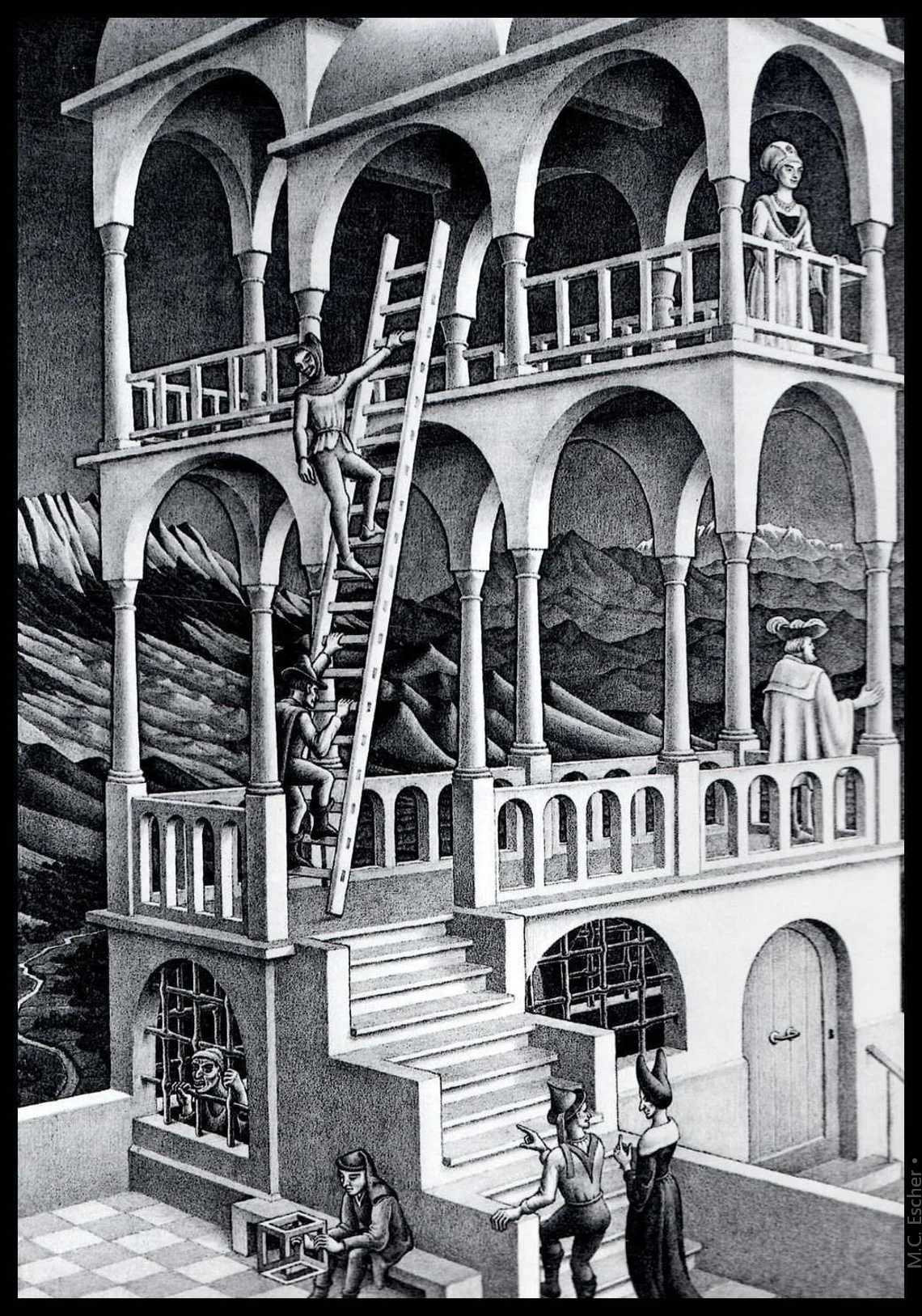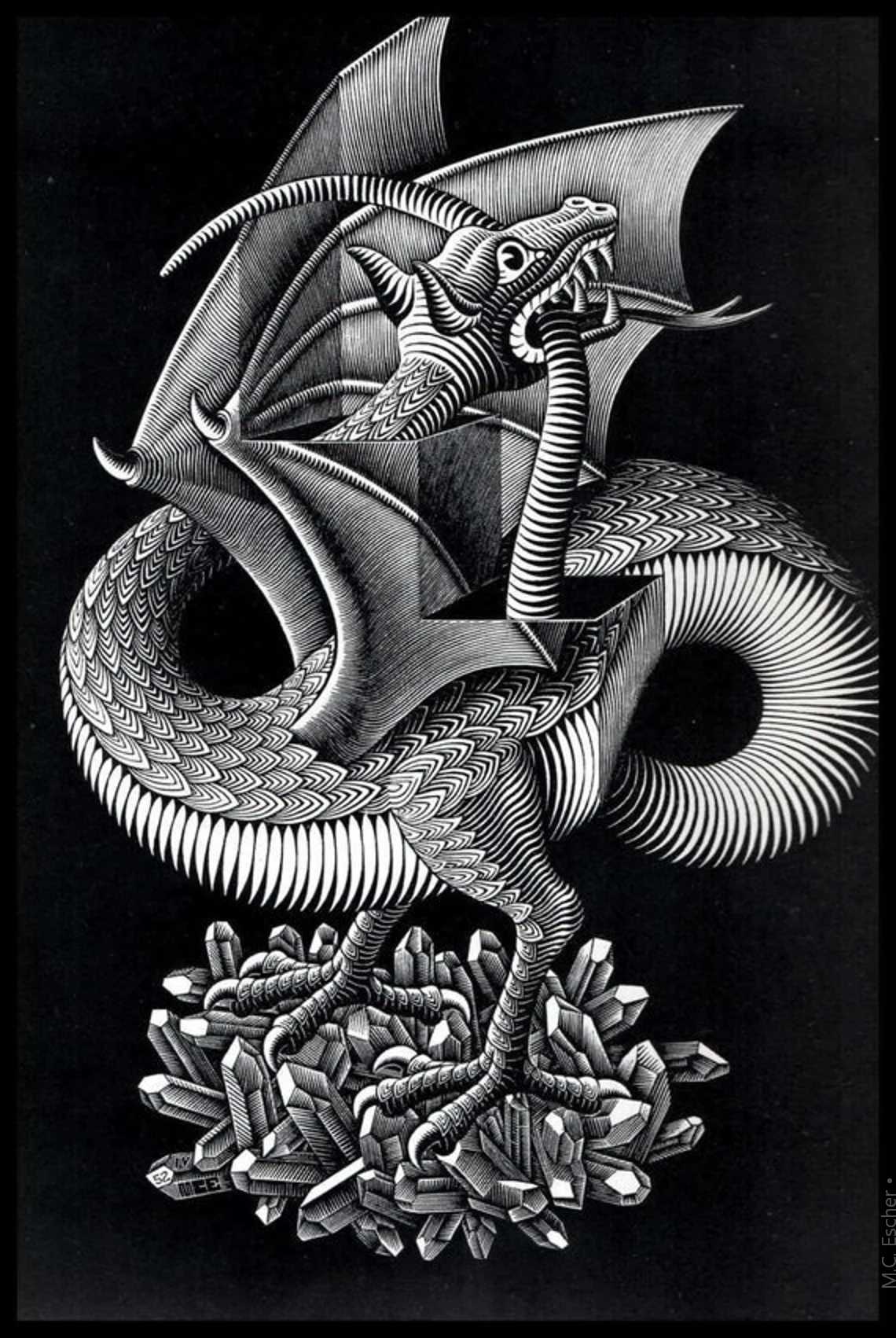Exploring the Mind-Bending Artistry of M.C. Escher: A Journey Through Tessellations, Optical Illusions, and Infinite Realms
Maurits Cornelis Escher, commonly known as M.C. Escher, was a Dutch graphic artist known for his intricate and mind-bending works of art. Born on June 17, 1898, in Leeuwarden, Netherlands, Escher’s art defies conventional categorization and transcends boundaries between mathematics, science, and art. His work is characterized by the use of intricate tessellations, optical illusions, and geometric patterns, which challenge the viewer’s perception and understanding of reality.
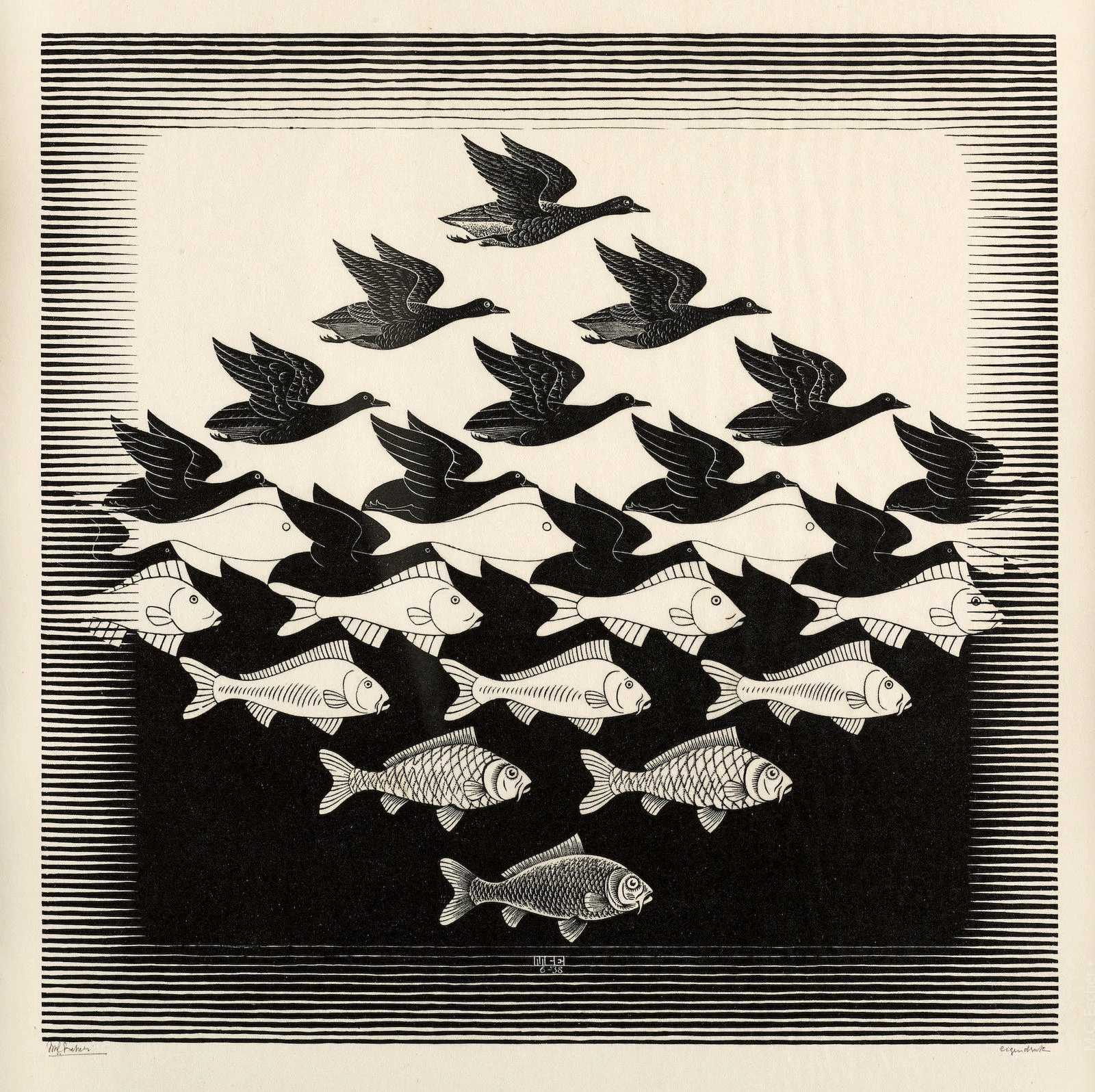
Artistic Style and Techniques:
- Tessellations: Escher is perhaps best known for his tessellations, which are intricate patterns of repeated shapes that fit together seamlessly without gaps or overlaps. He explored the possibilities of transforming recognizable forms, such as birds, fish, and reptiles, into tessellating patterns that created the illusion of infinite repetition.
- Impossible Figures: Escher’s fascination with optical illusions led him to create many works featuring impossible objects, such as the famous “Waterfall” and “Ascending and Descending.” These drawings and lithographs challenge the viewer’s understanding of spatial relationships and the laws of physics.
- Metamorphosis: Escher often depicted gradual transformations from one form to another in his works. These metamorphic drawings showcase his skill in seamlessly transitioning between different elements within a single composition.
- Lithography: Escher primarily worked in lithography, a printmaking technique that allowed him to create highly detailed and precise images. This medium suited his meticulous style and attention to detail.

Art Critique:
M.C. Escher’s art has been met with both fascination and critical acclaim for several reasons:
- Technical Mastery: Escher’s skill in lithography and printmaking was unparalleled. His ability to create intricate and mathematically precise drawings was highly regarded by his contemporaries and continues to be celebrated today.
- Intellectual Engagement: Escher’s art challenges the viewer’s intellect and perception. His works invite contemplation, as they often play with the limits of human understanding and the boundaries between reality and illusion.
- Cross-Disciplinary Influence: Escher’s work has transcended the art world and had a significant impact on mathematics, science, and popular culture. Mathematicians and scientists have found inspiration in his tessellations and impossible figures, leading to further exploration of these concepts.
- Timelessness: Escher’s art remains relevant and captivating to this day. His ability to evoke a sense of wonder and fascination with the mysteries of the universe ensures that his work continues to resonate with a wide audience.
- Philosophical Depth: Many of Escher’s works touch on philosophical themes, such as the nature of reality, infinity, and the limitations of human perception. This philosophical dimension adds depth and complexity to his art.
In conclusion, M.C. Escher’s unique blend of artistic skill, mathematical precision, and intellectual curiosity has left an indelible mark on the world of art. His work challenges our understanding of reality, engages our intellect, and continues to inspire artists, mathematicians, and thinkers across disciplines. Escher’s legacy endures as a testament to the limitless possibilities of human creativity and imagination.
The M.C. Escher Company, The Netherlands. All rights reserved.
The M.C. Escher Company, The Netherlands. All rights reserved.
